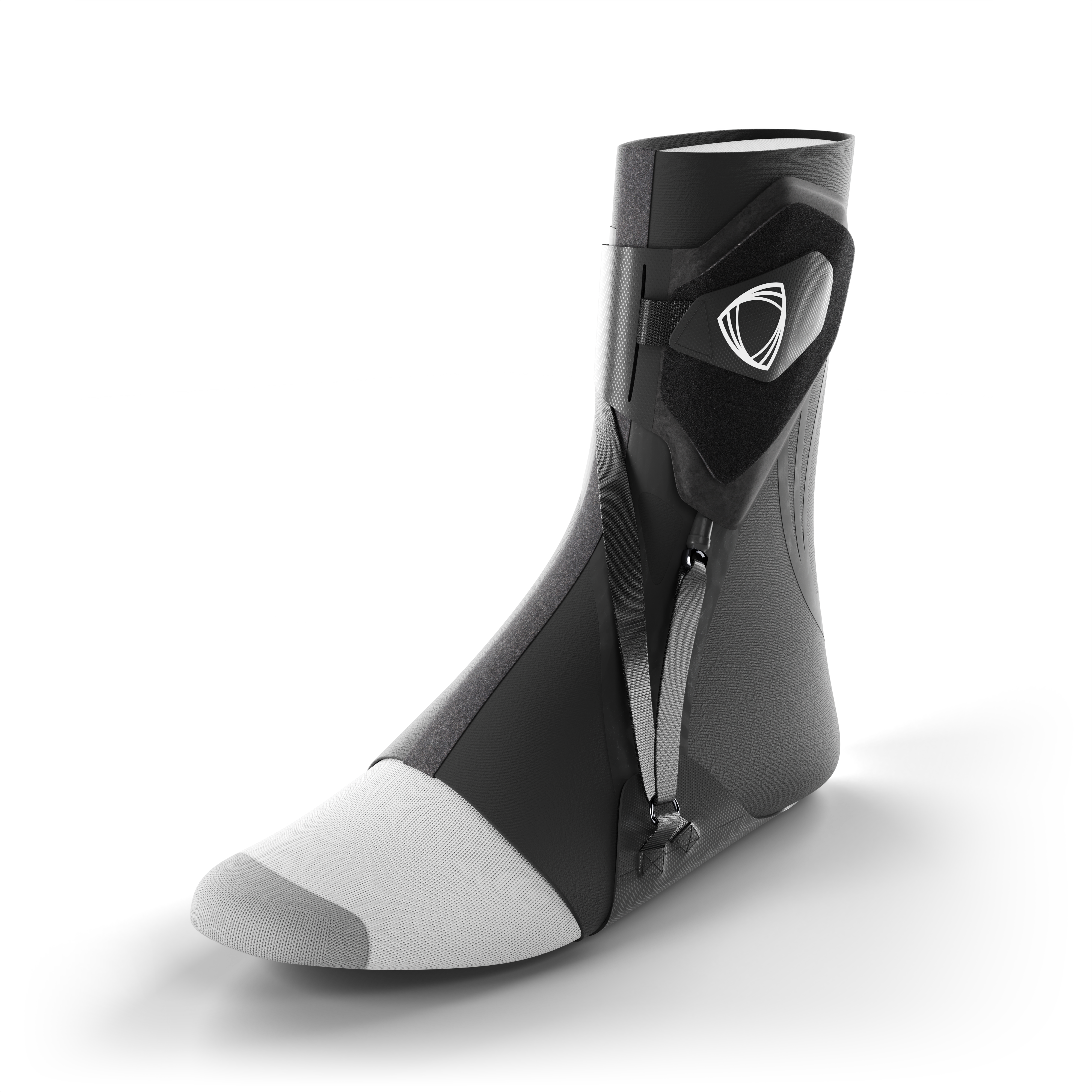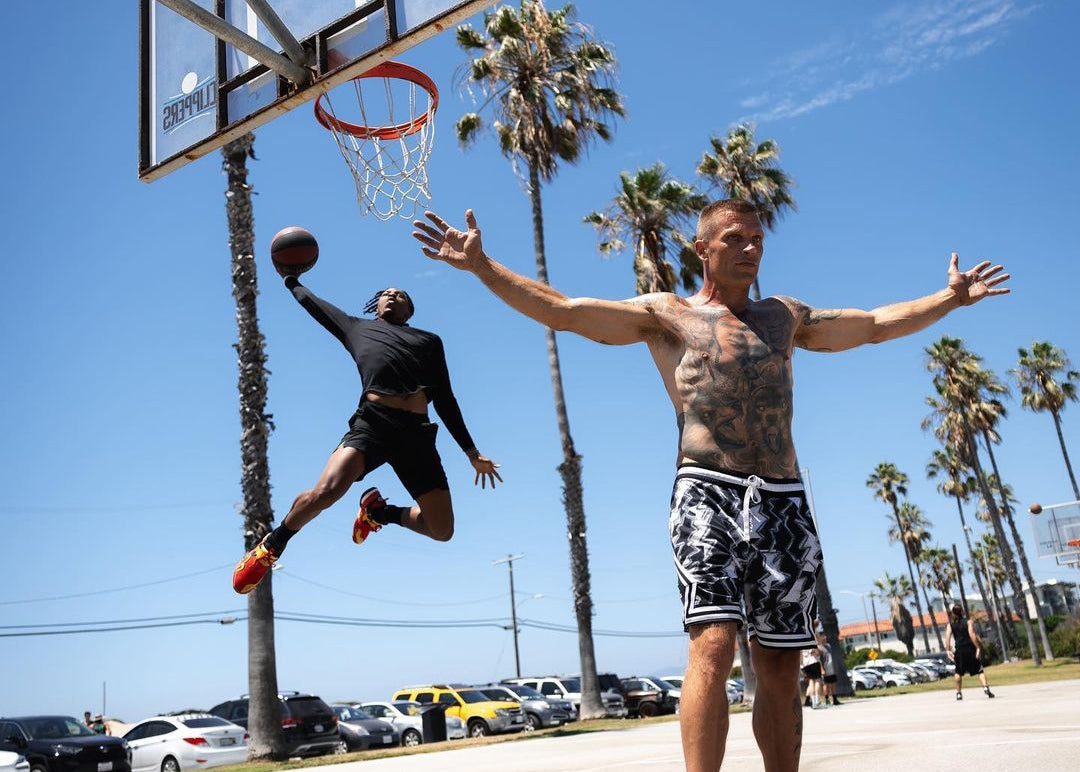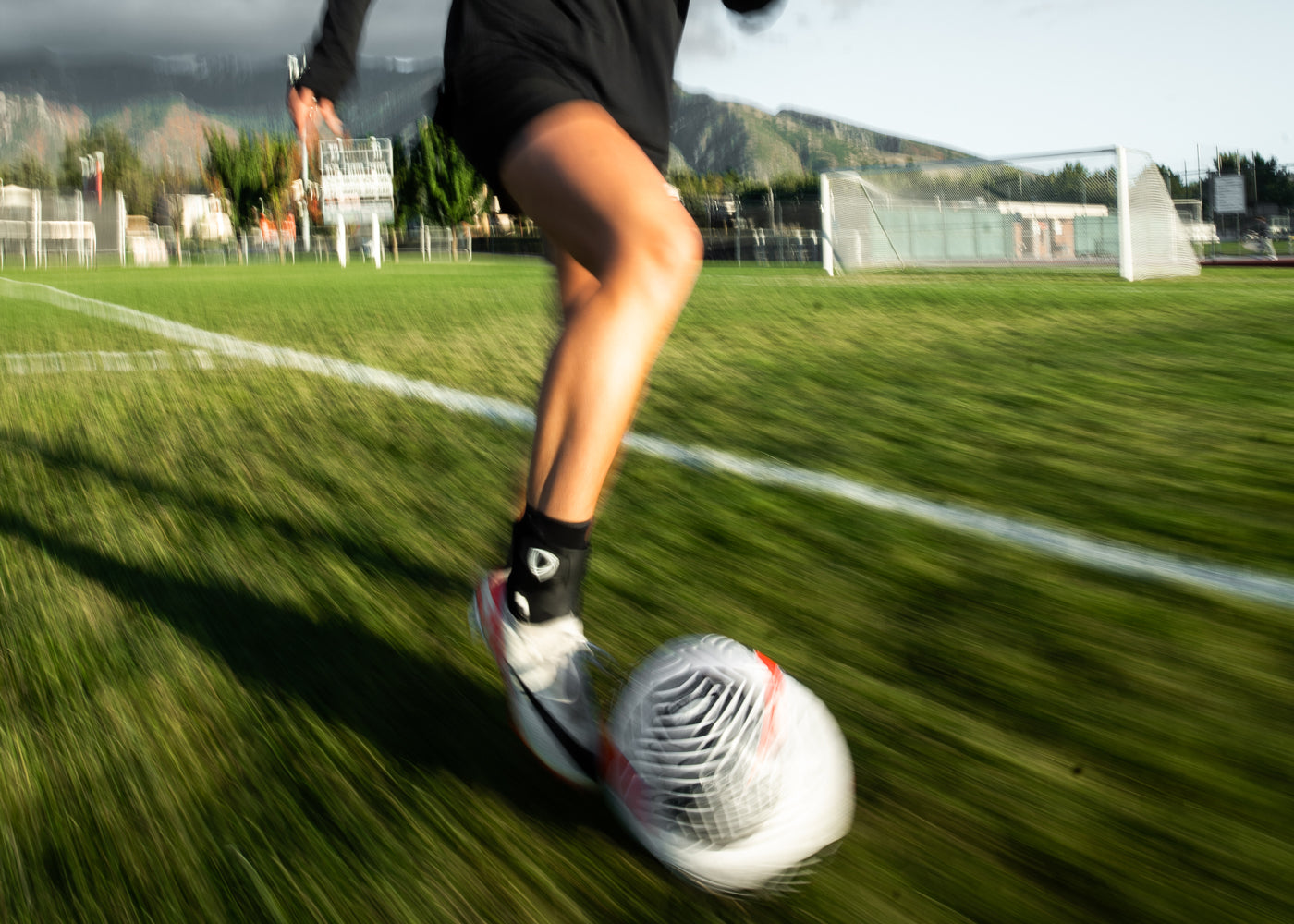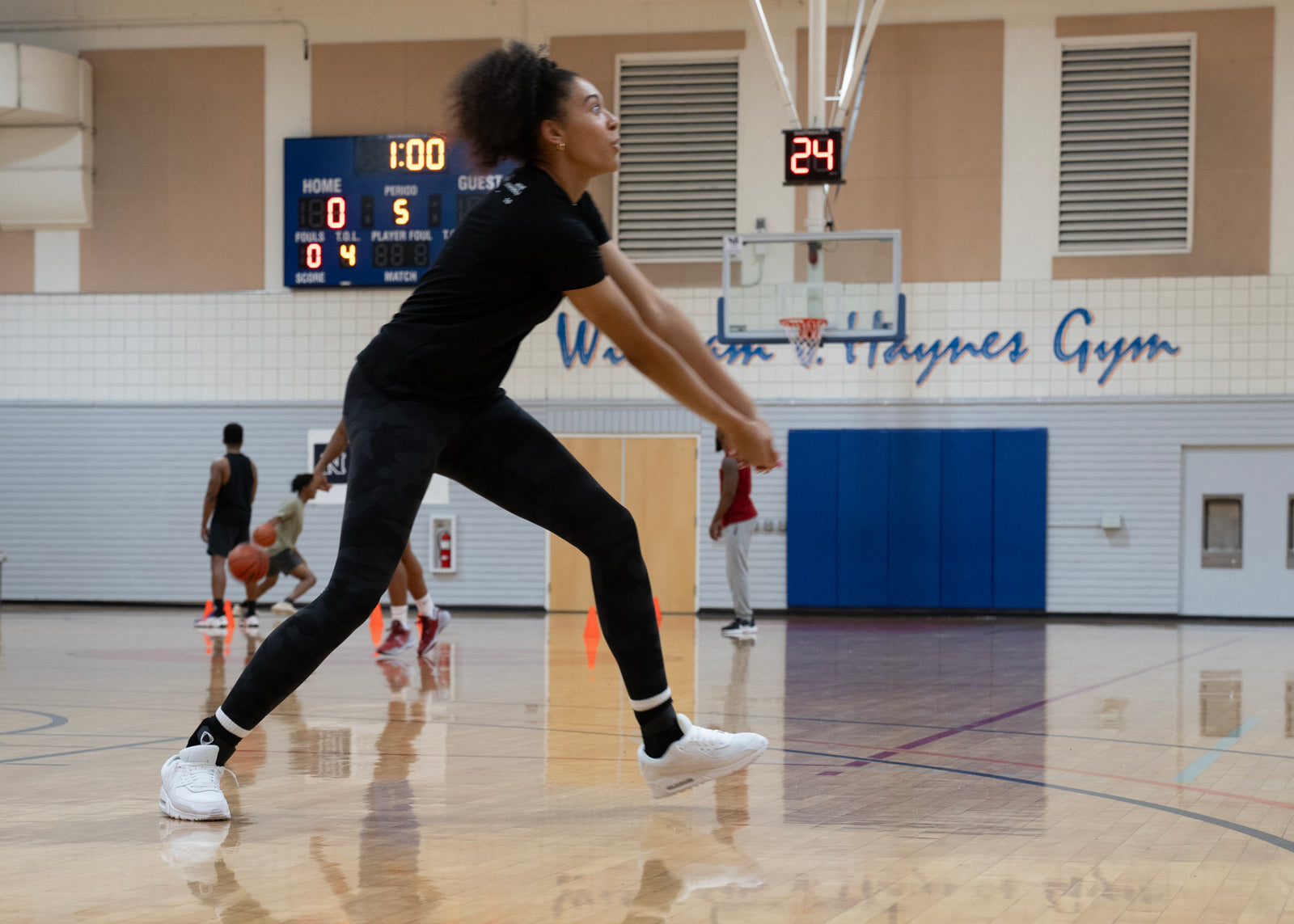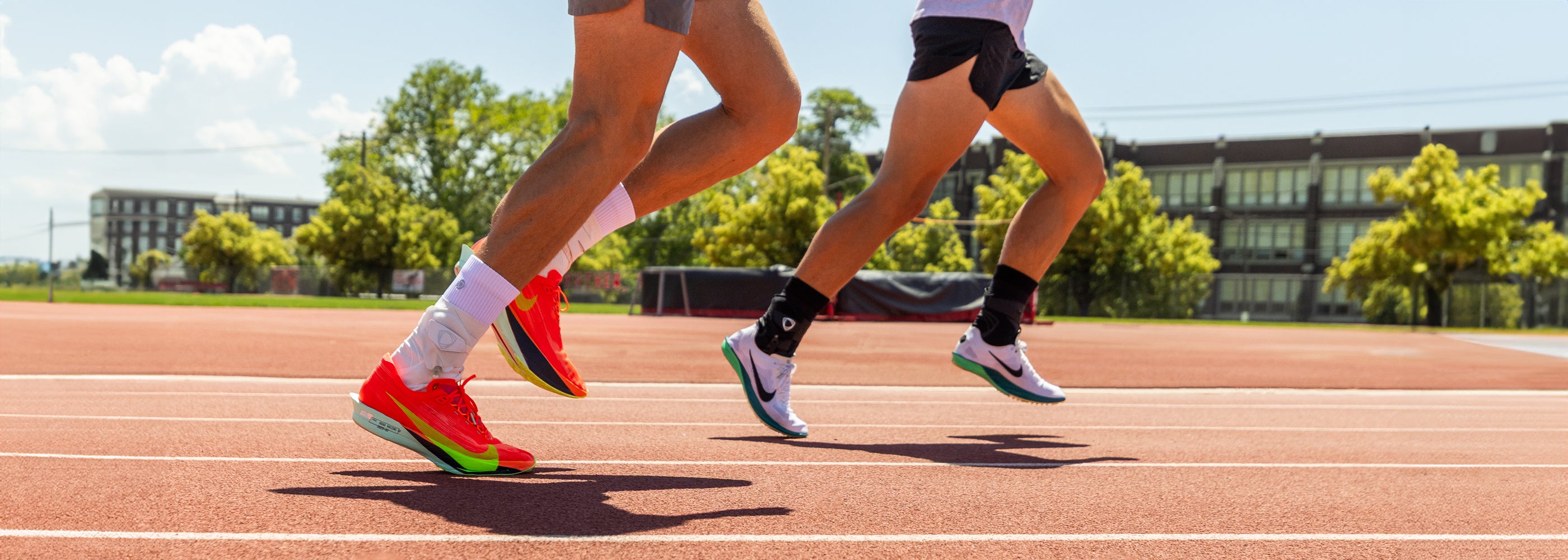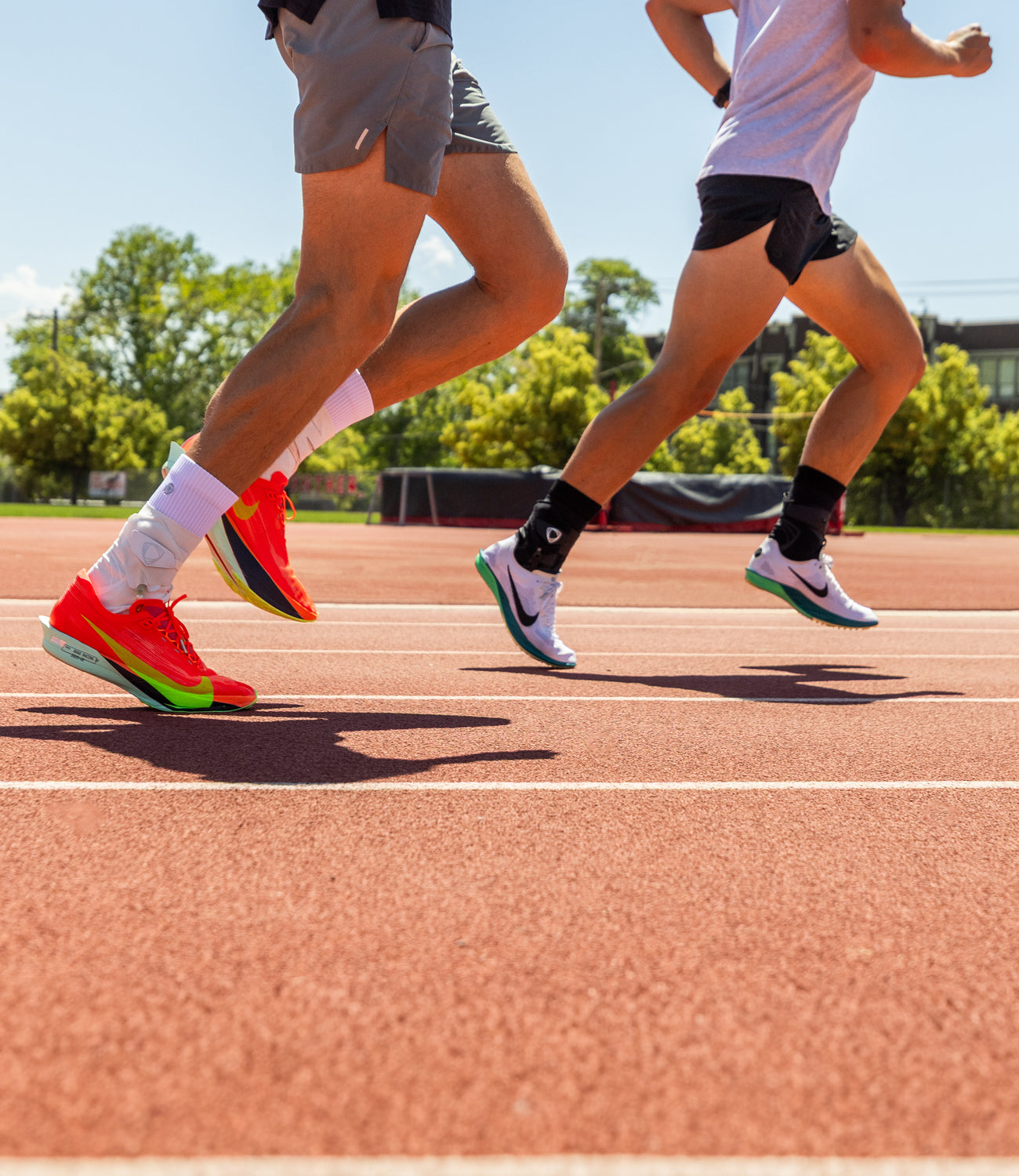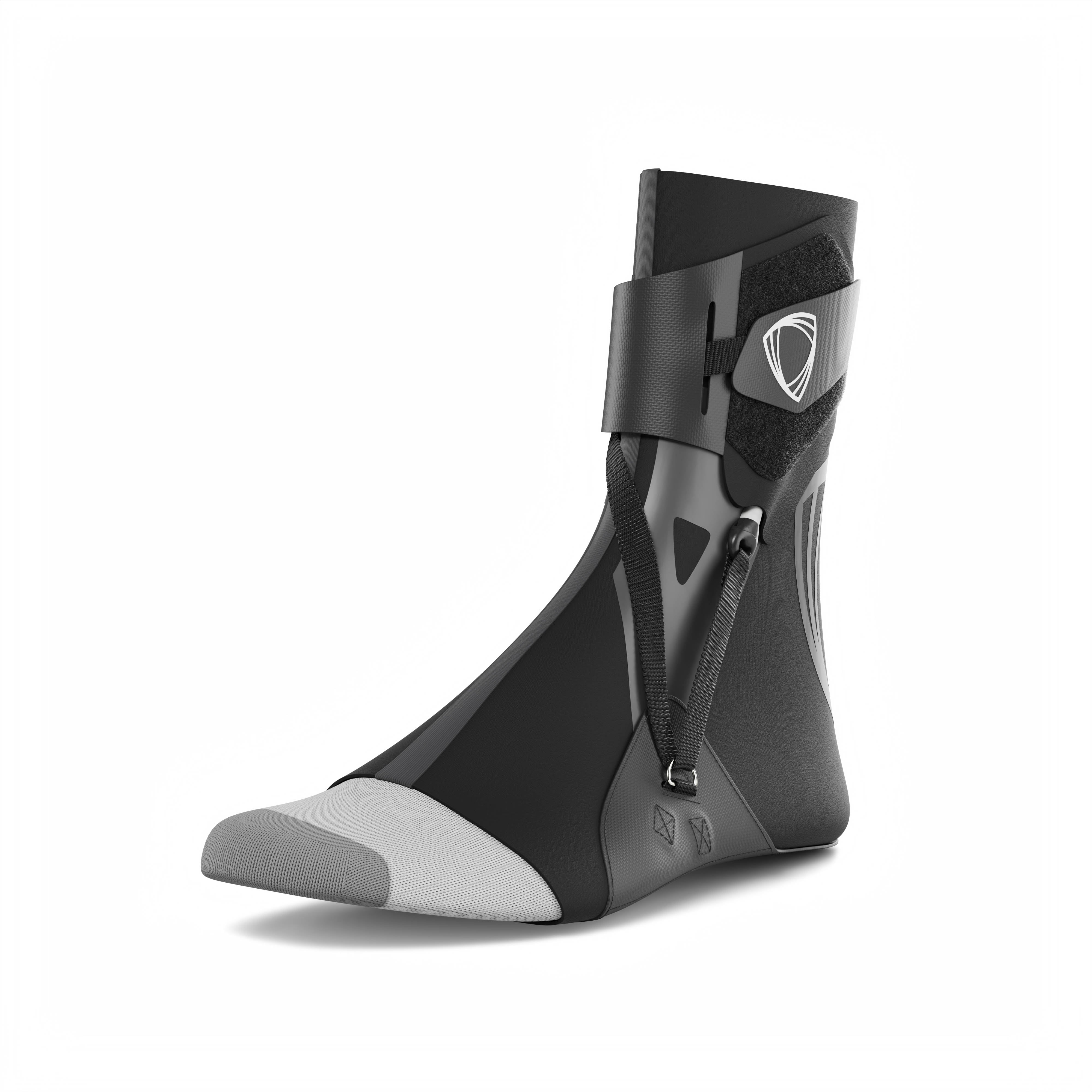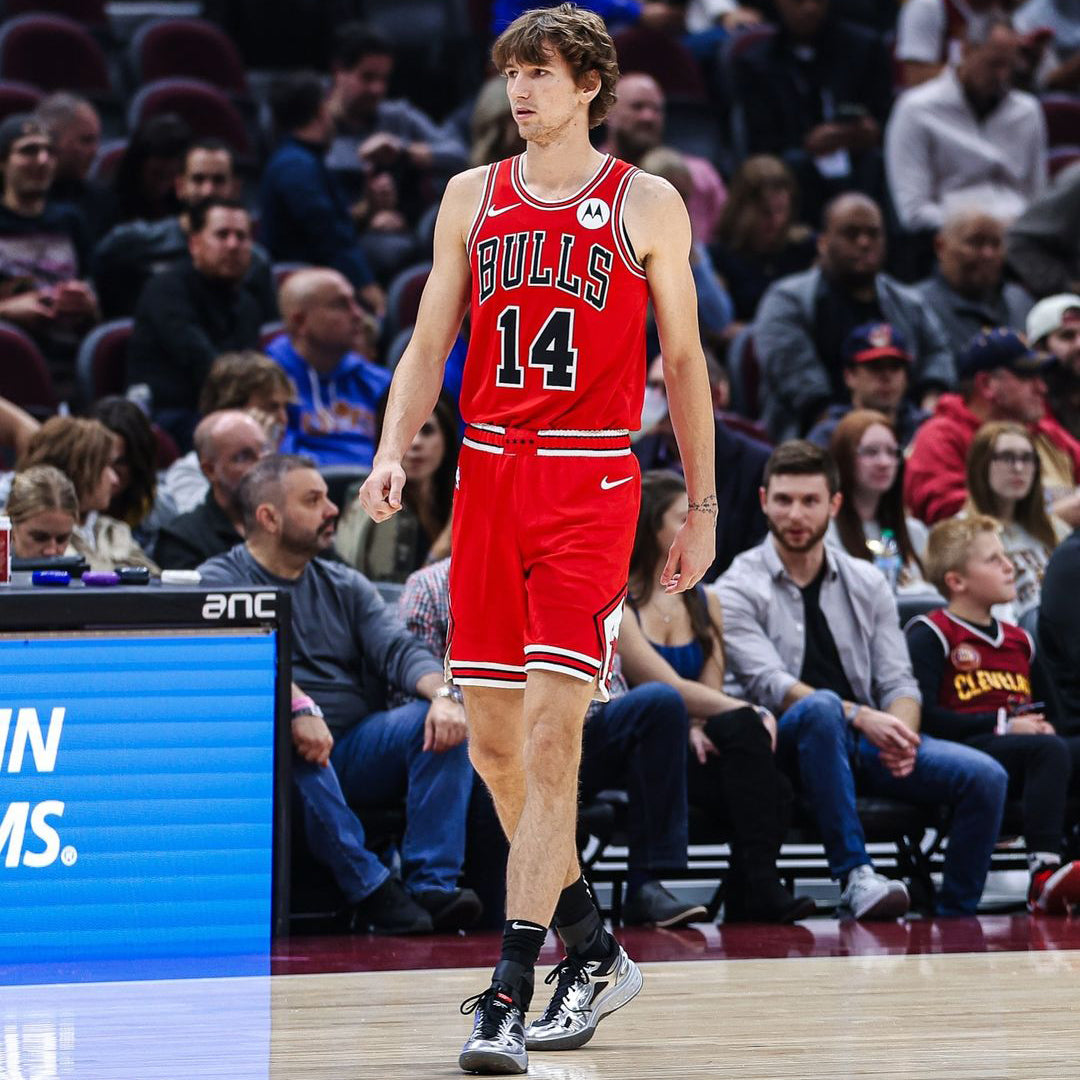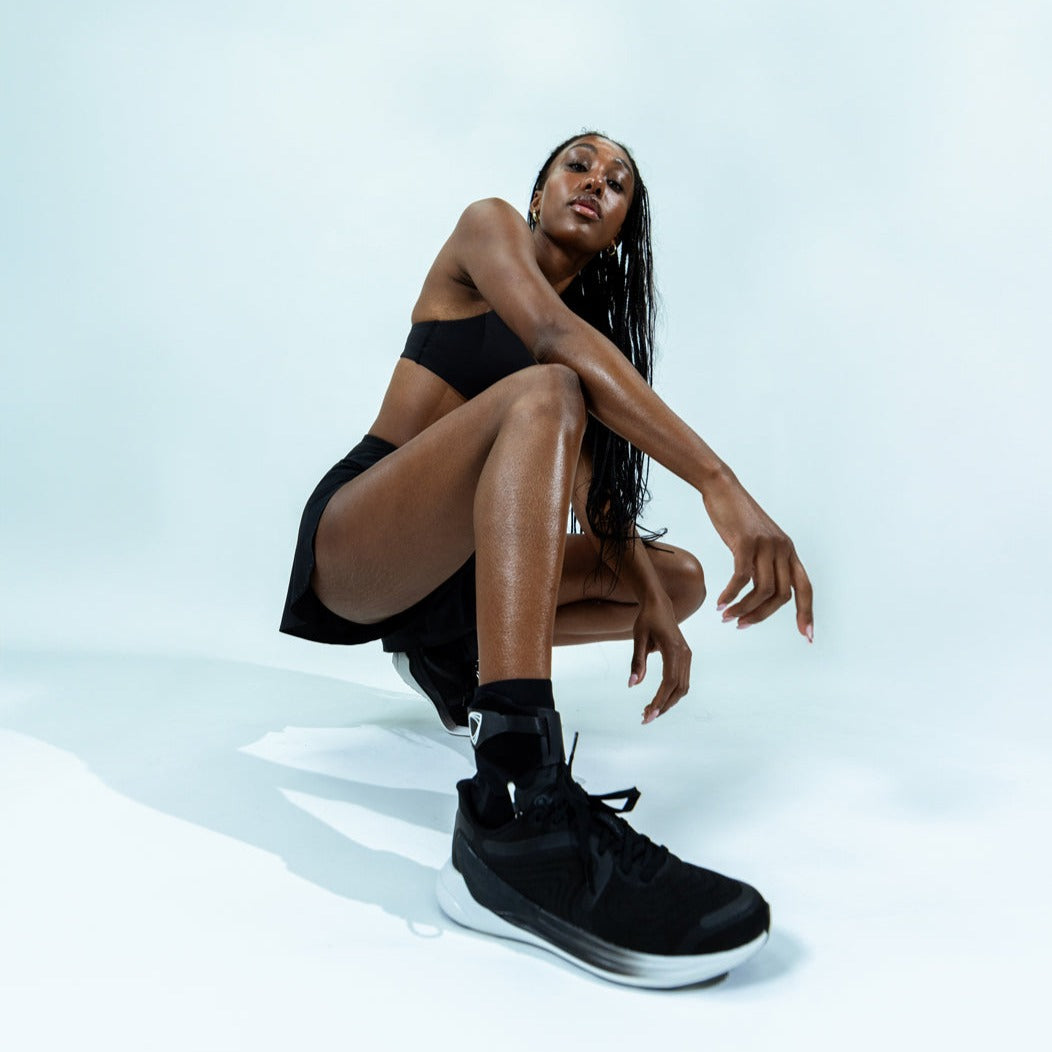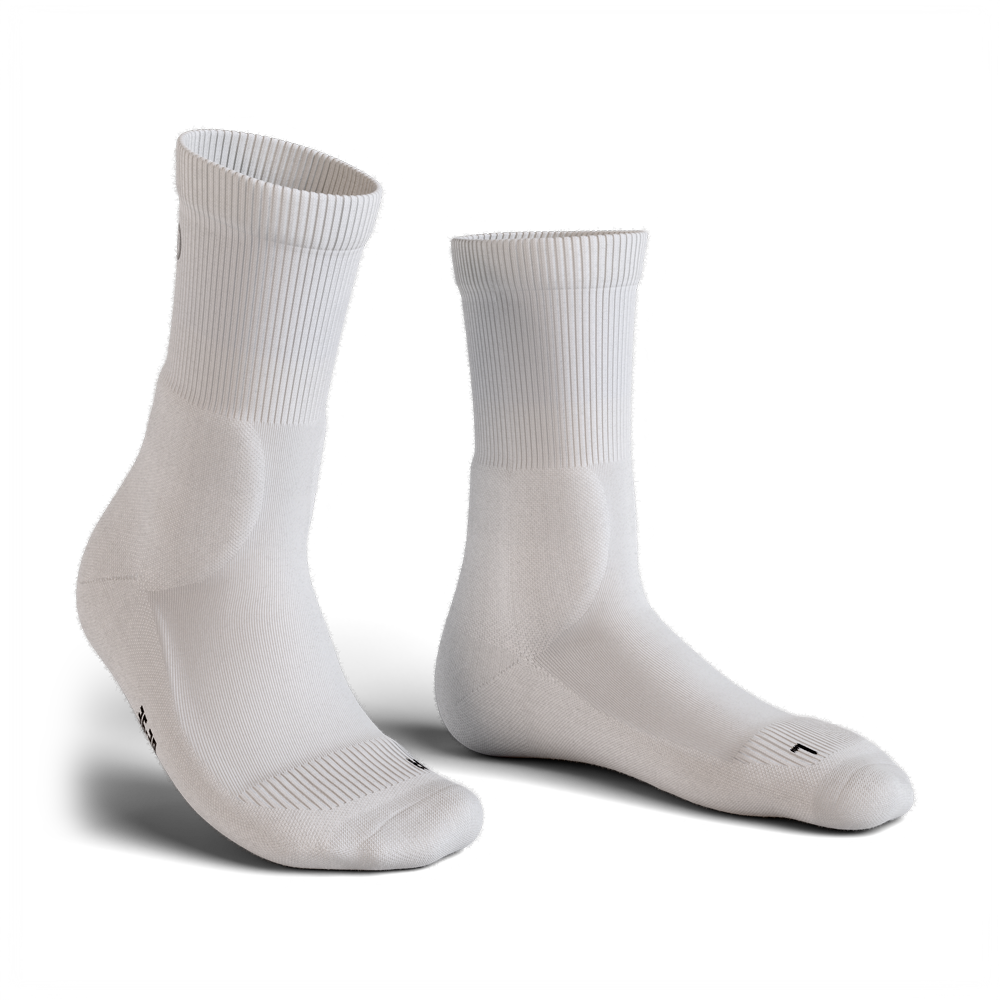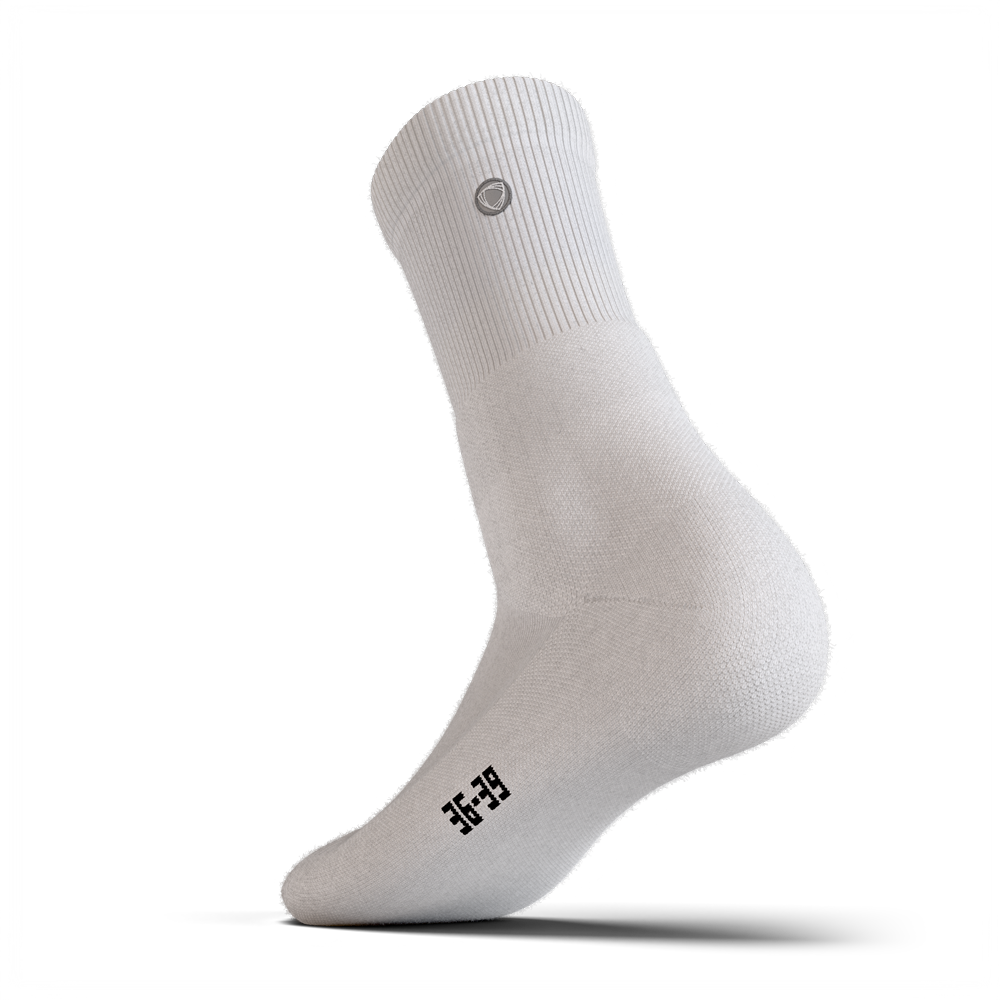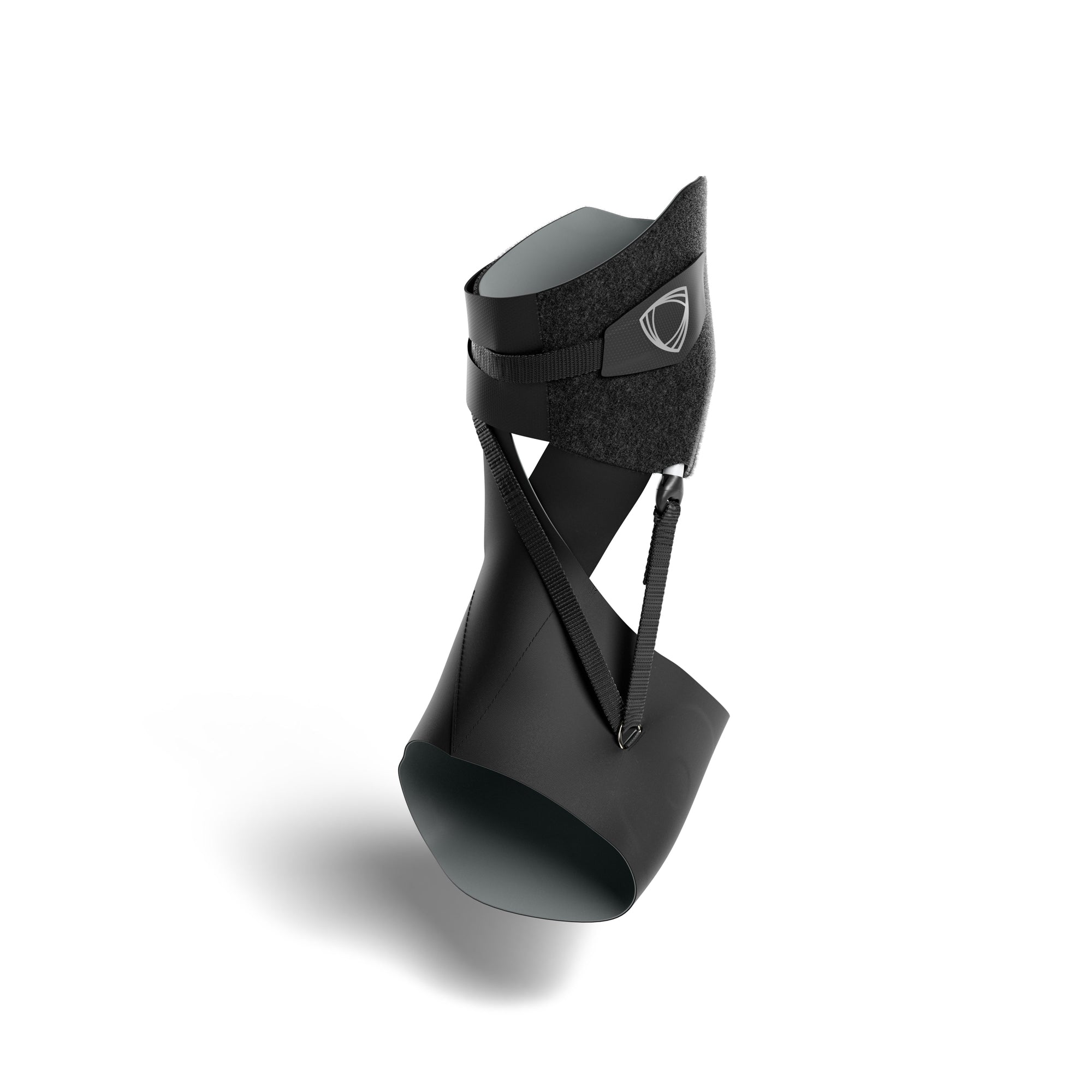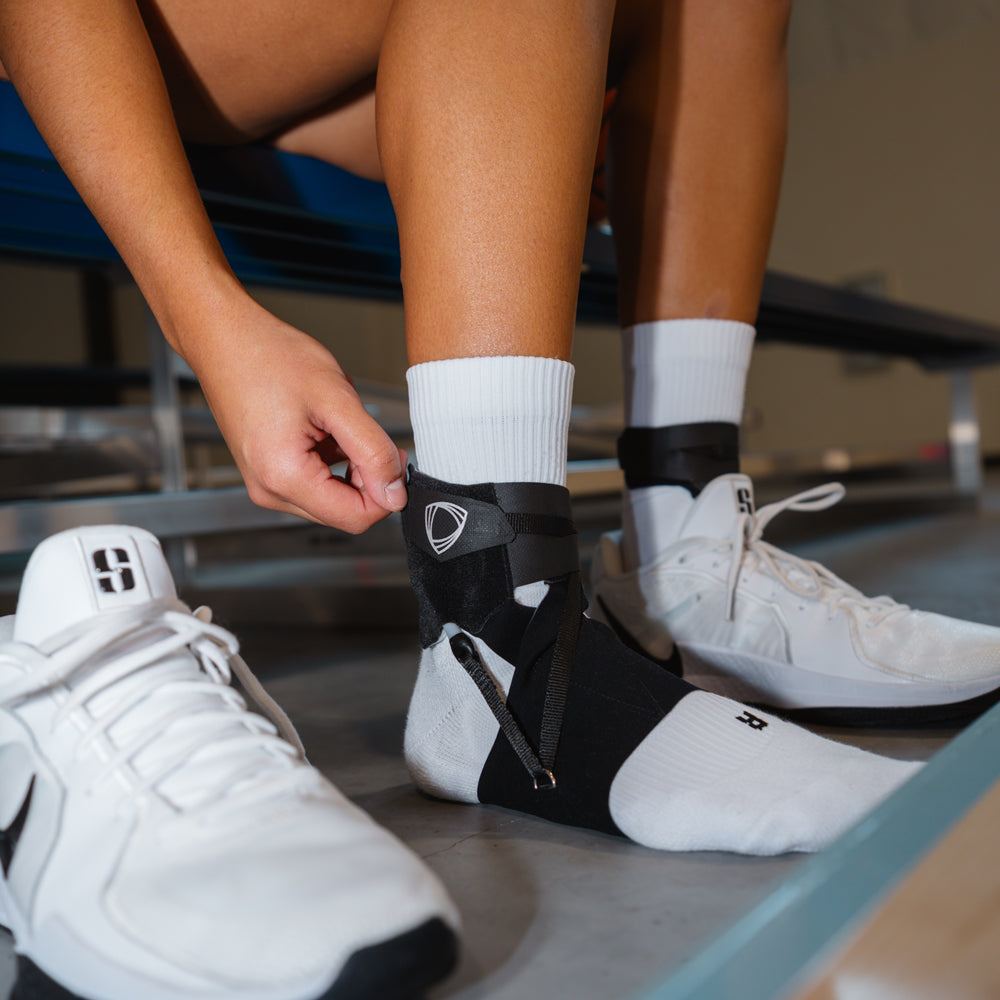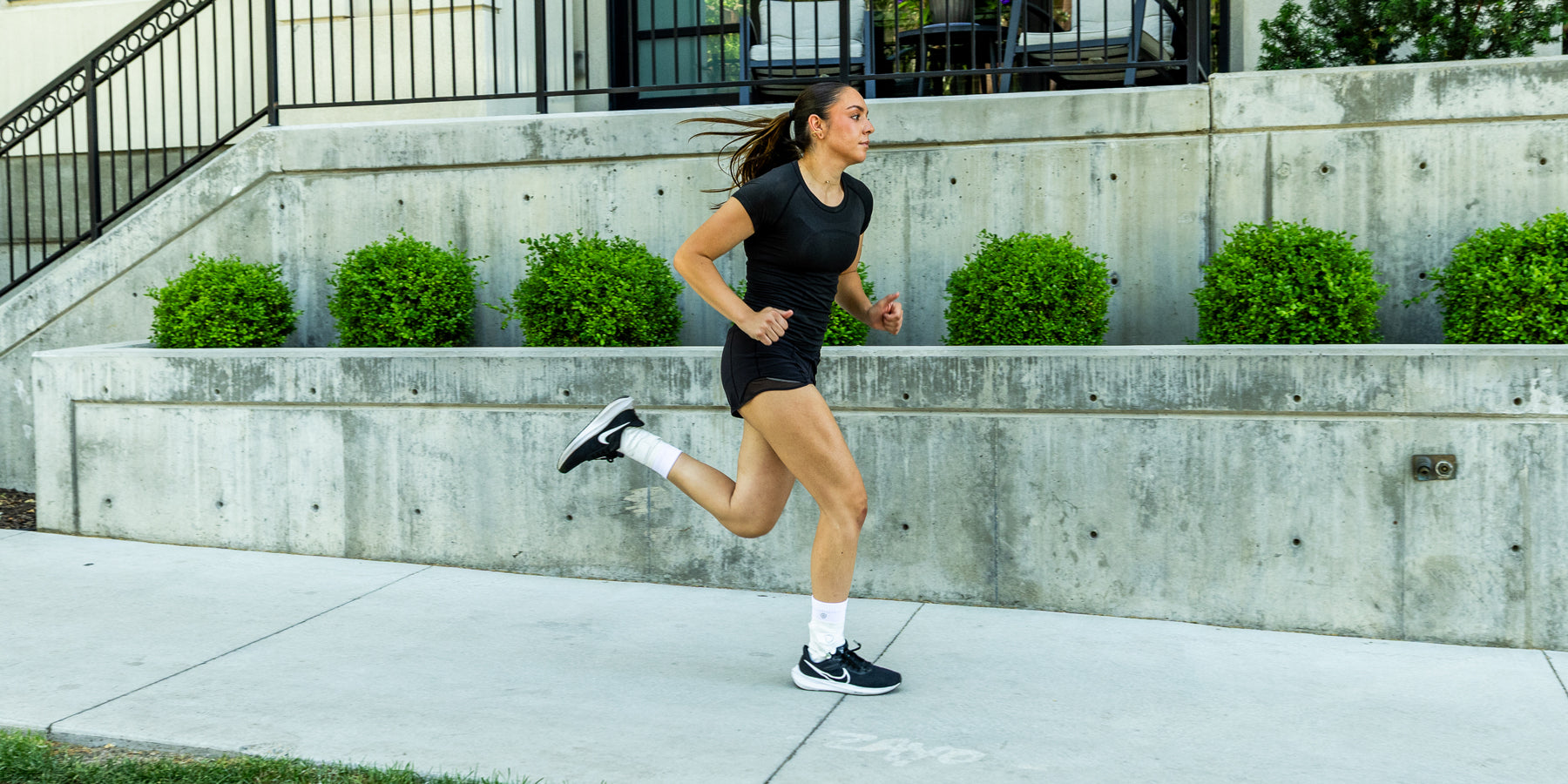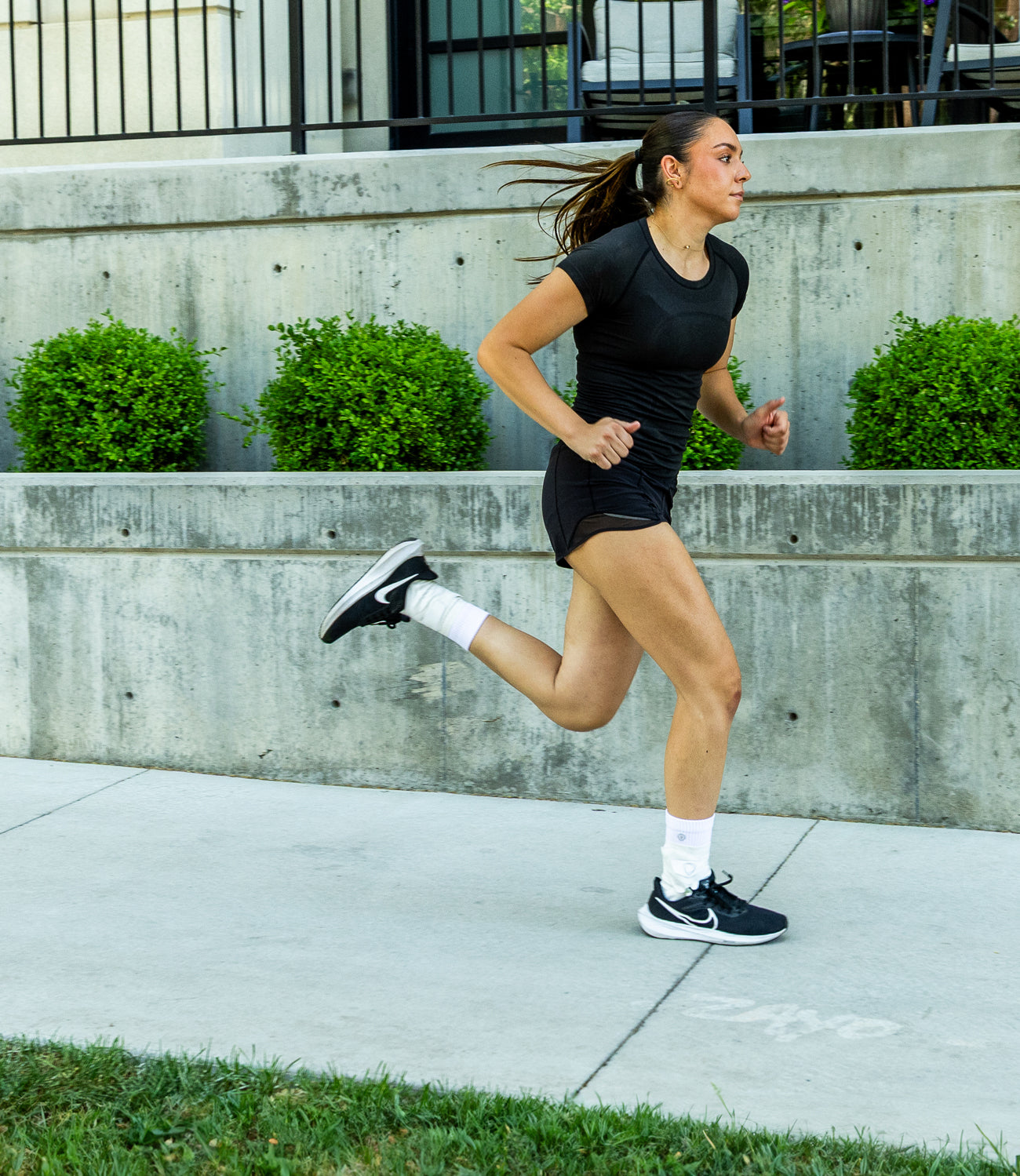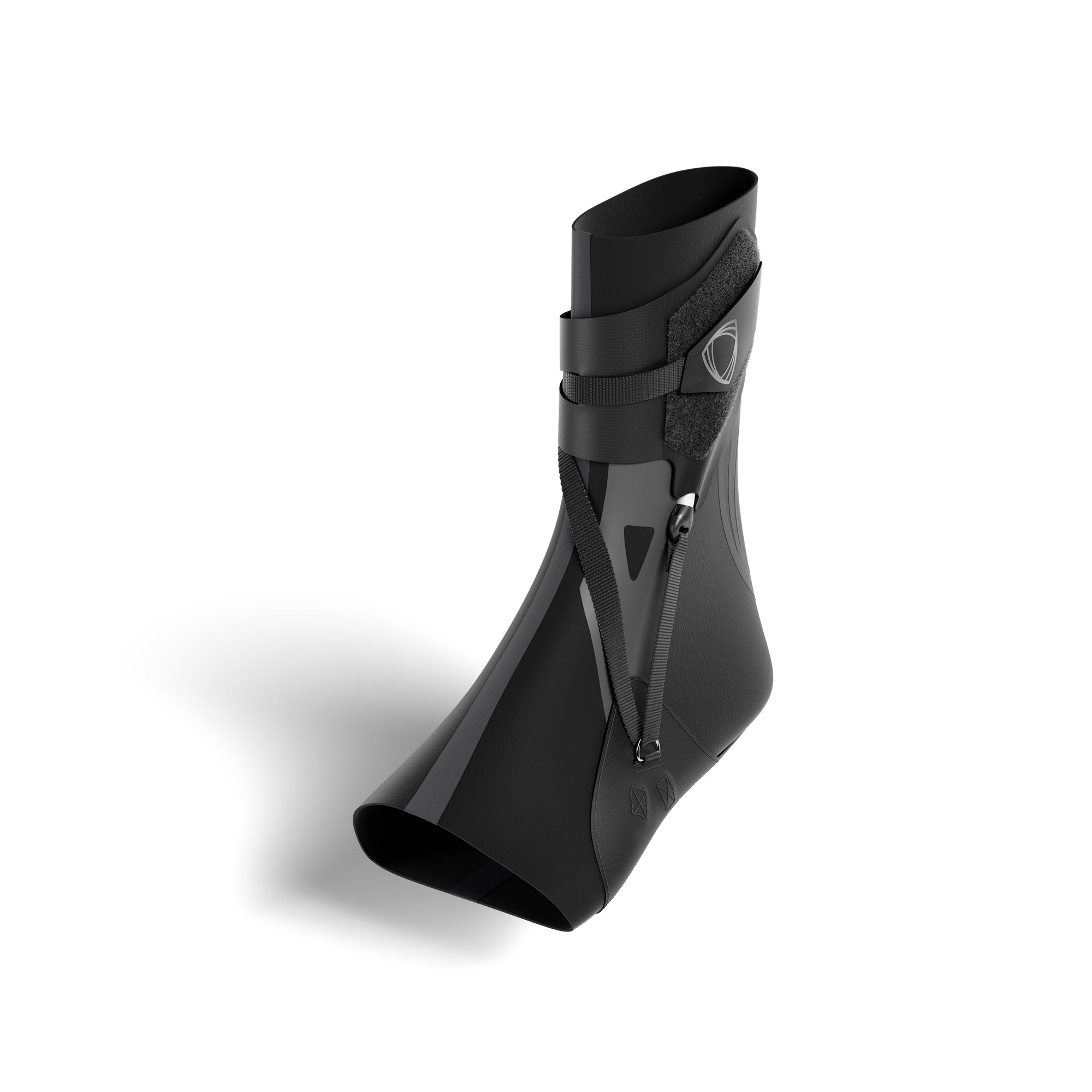
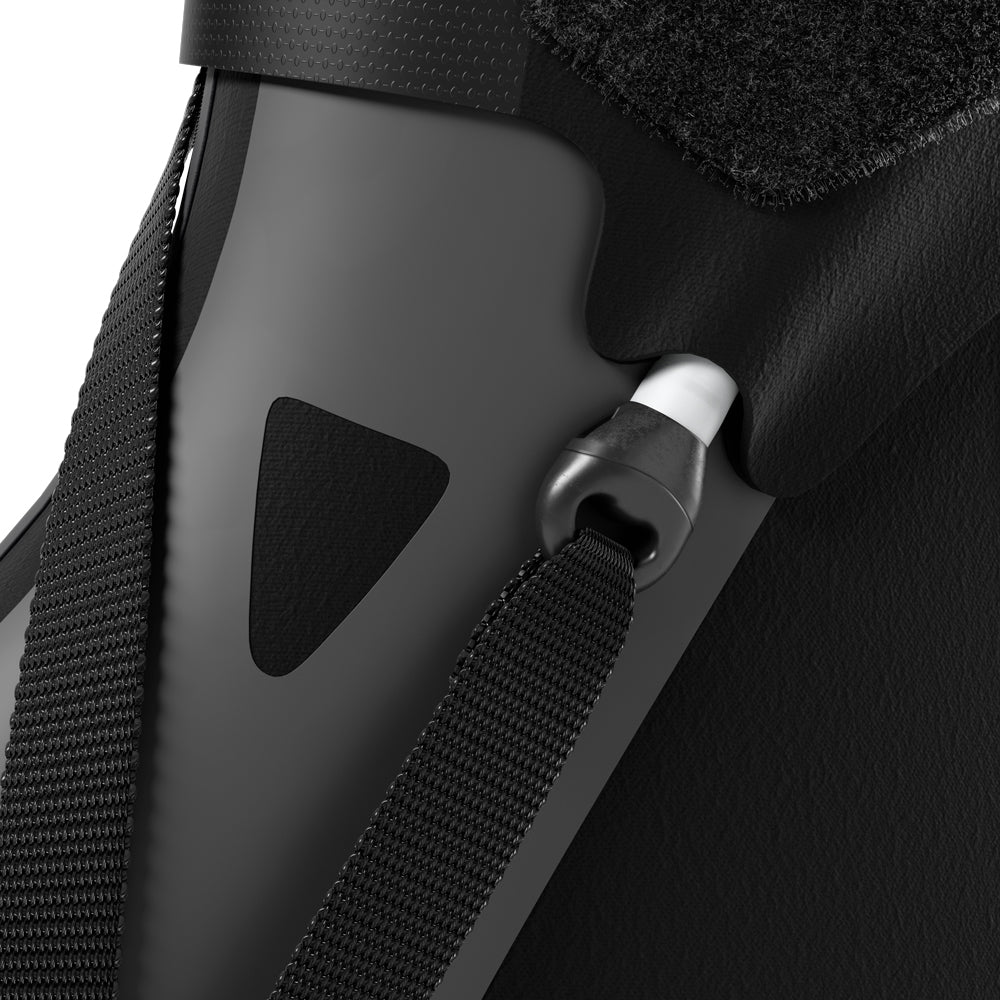
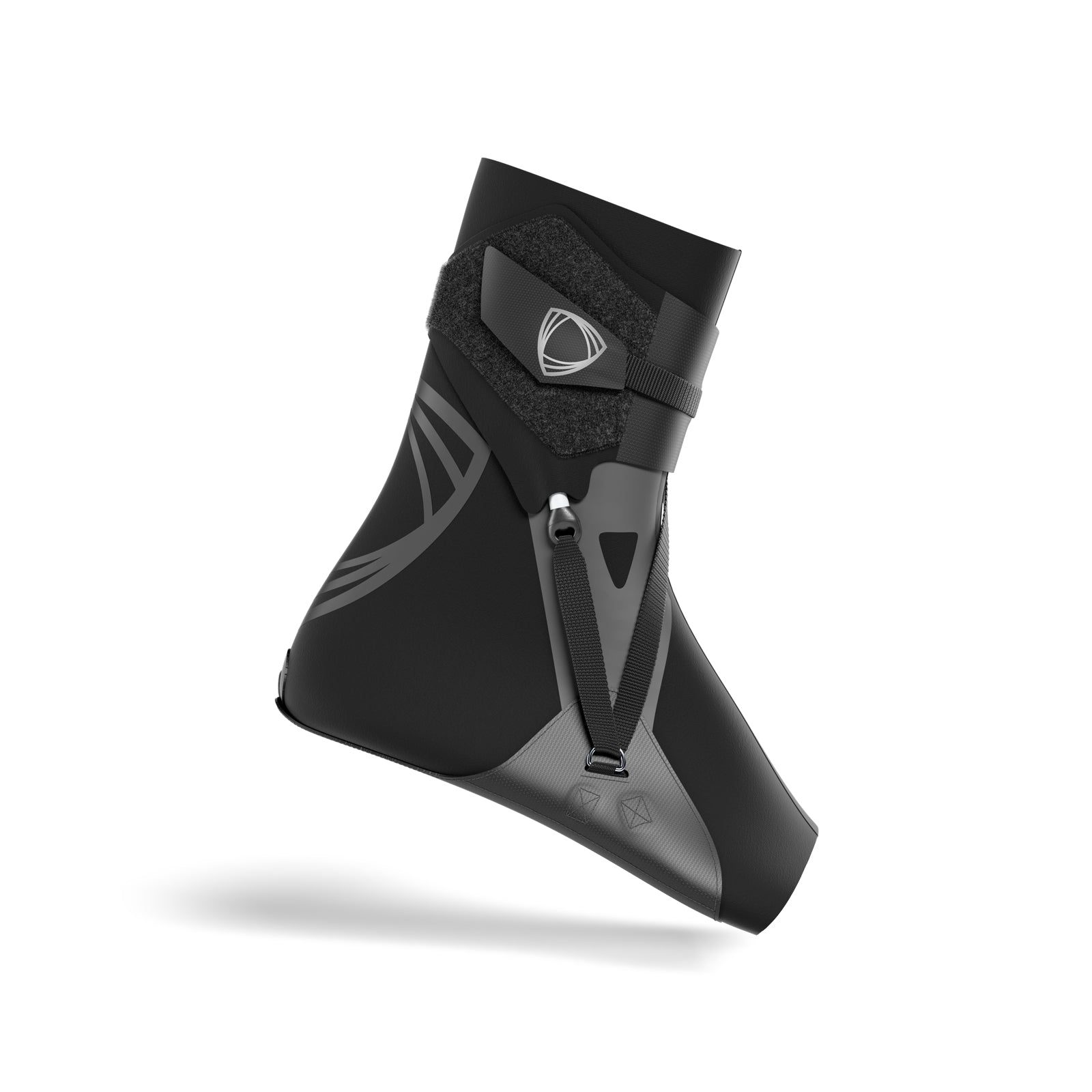
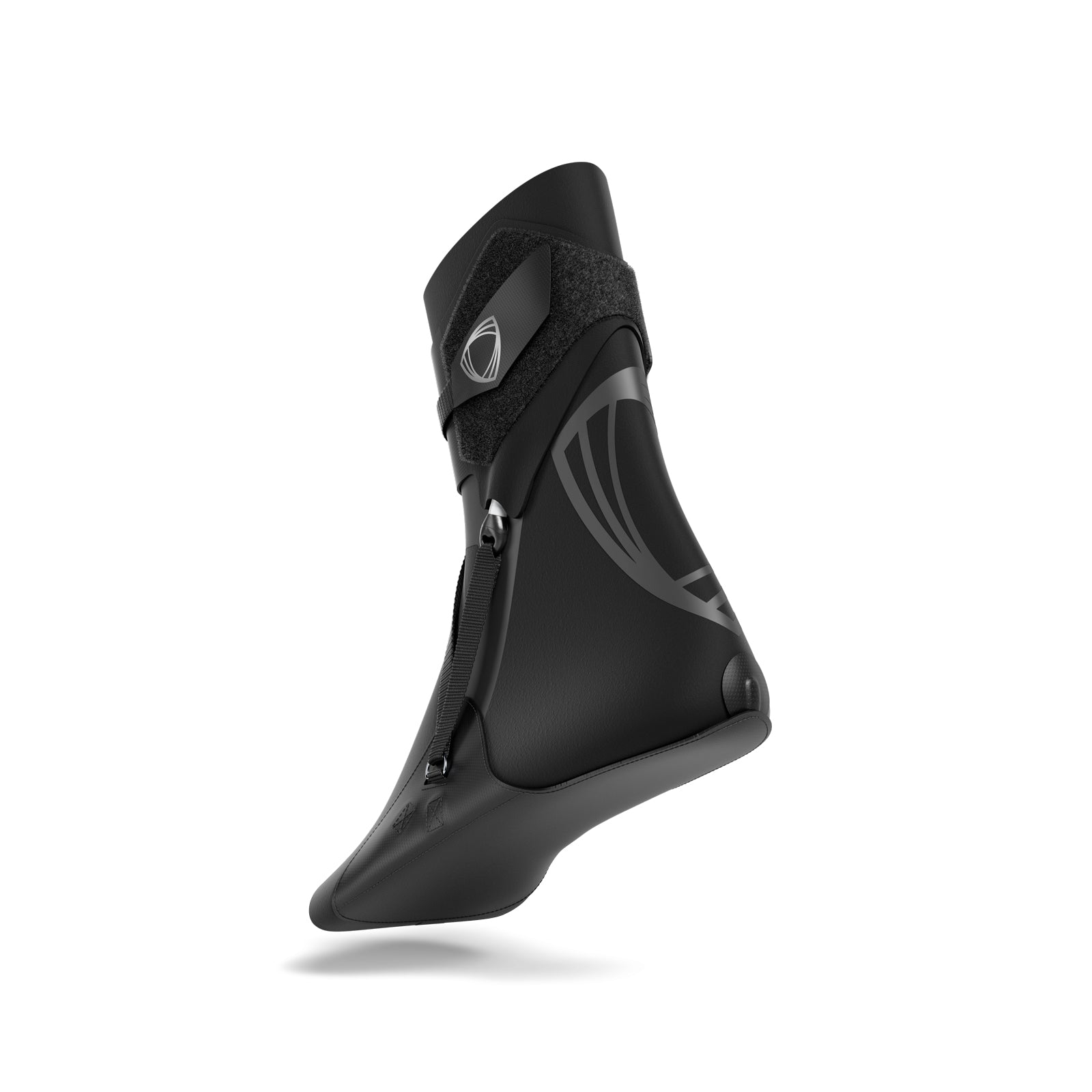
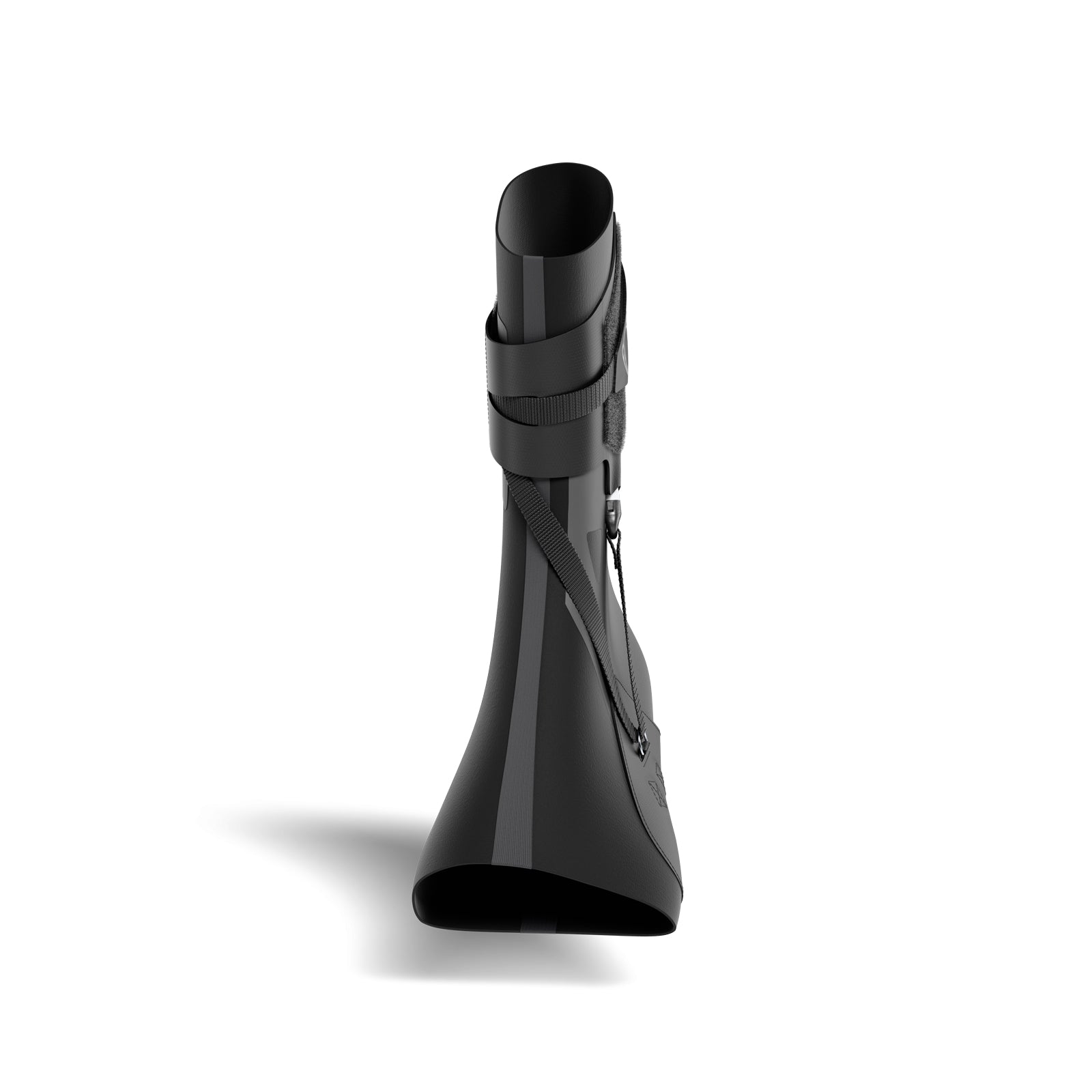
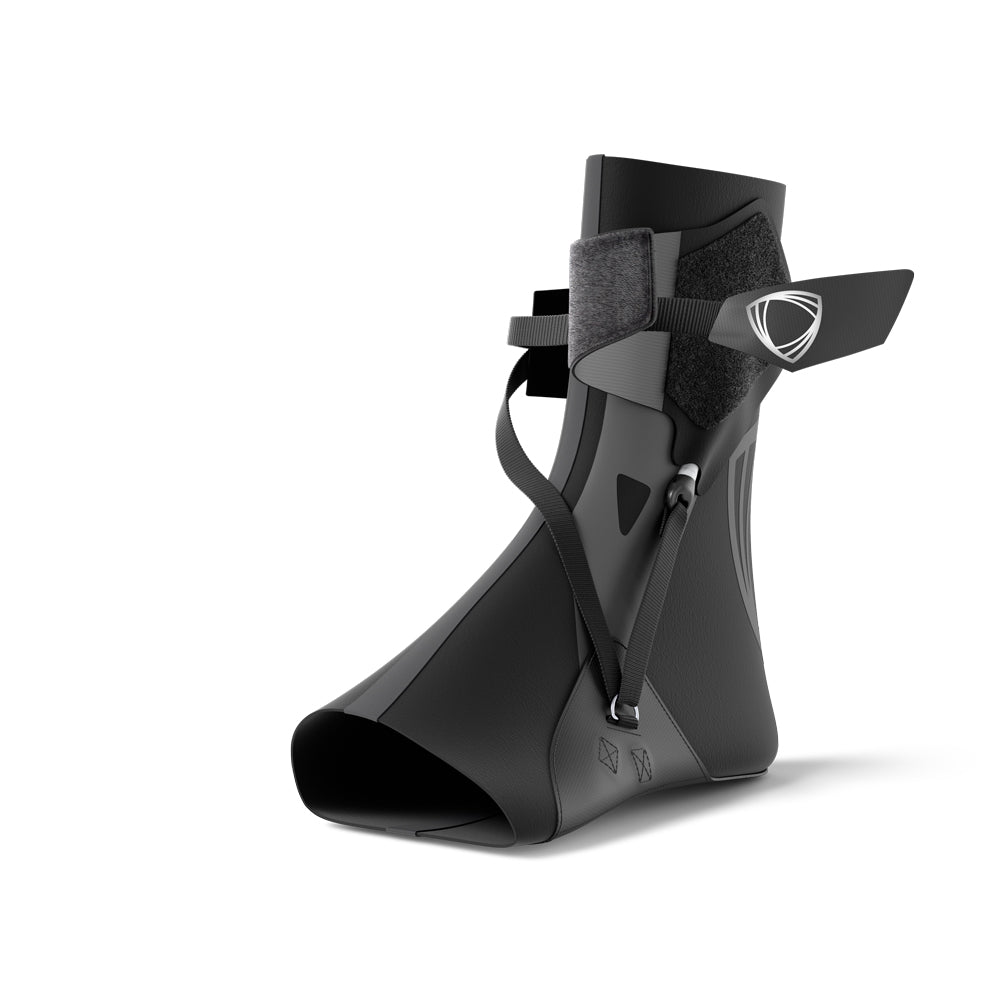
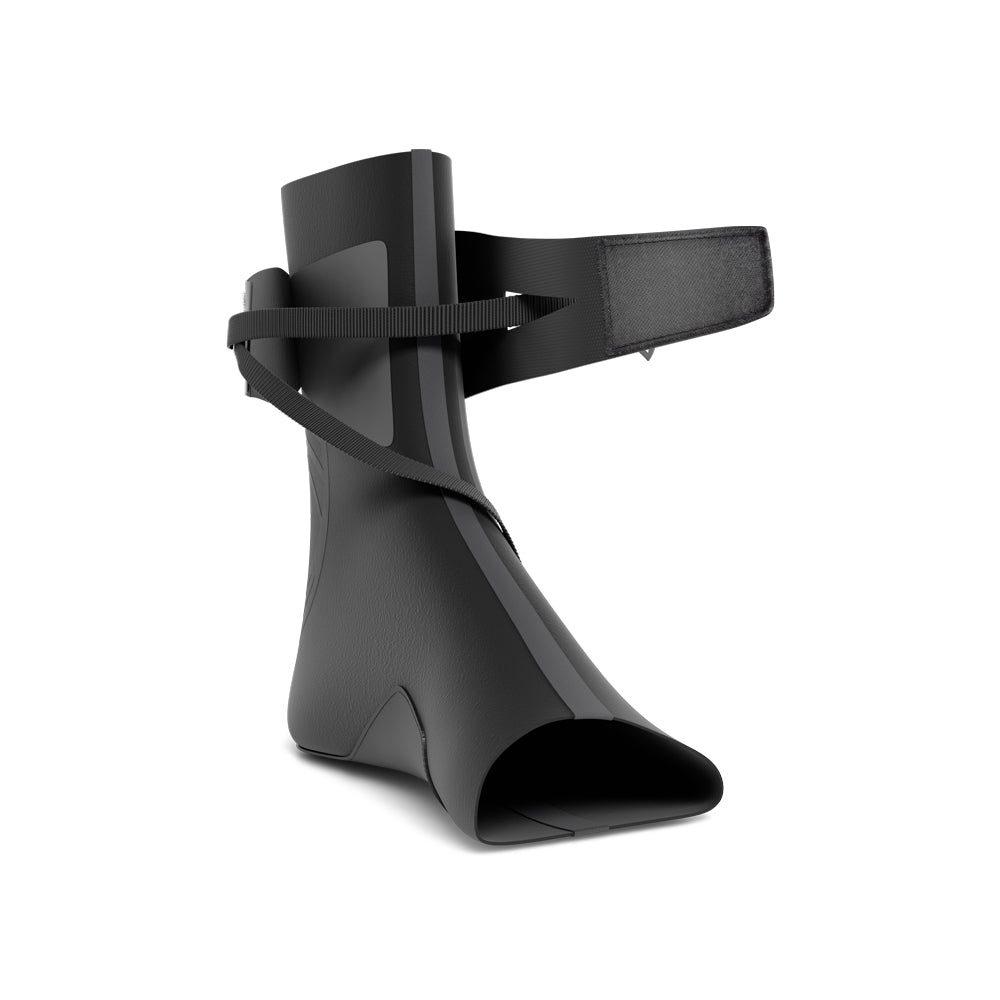
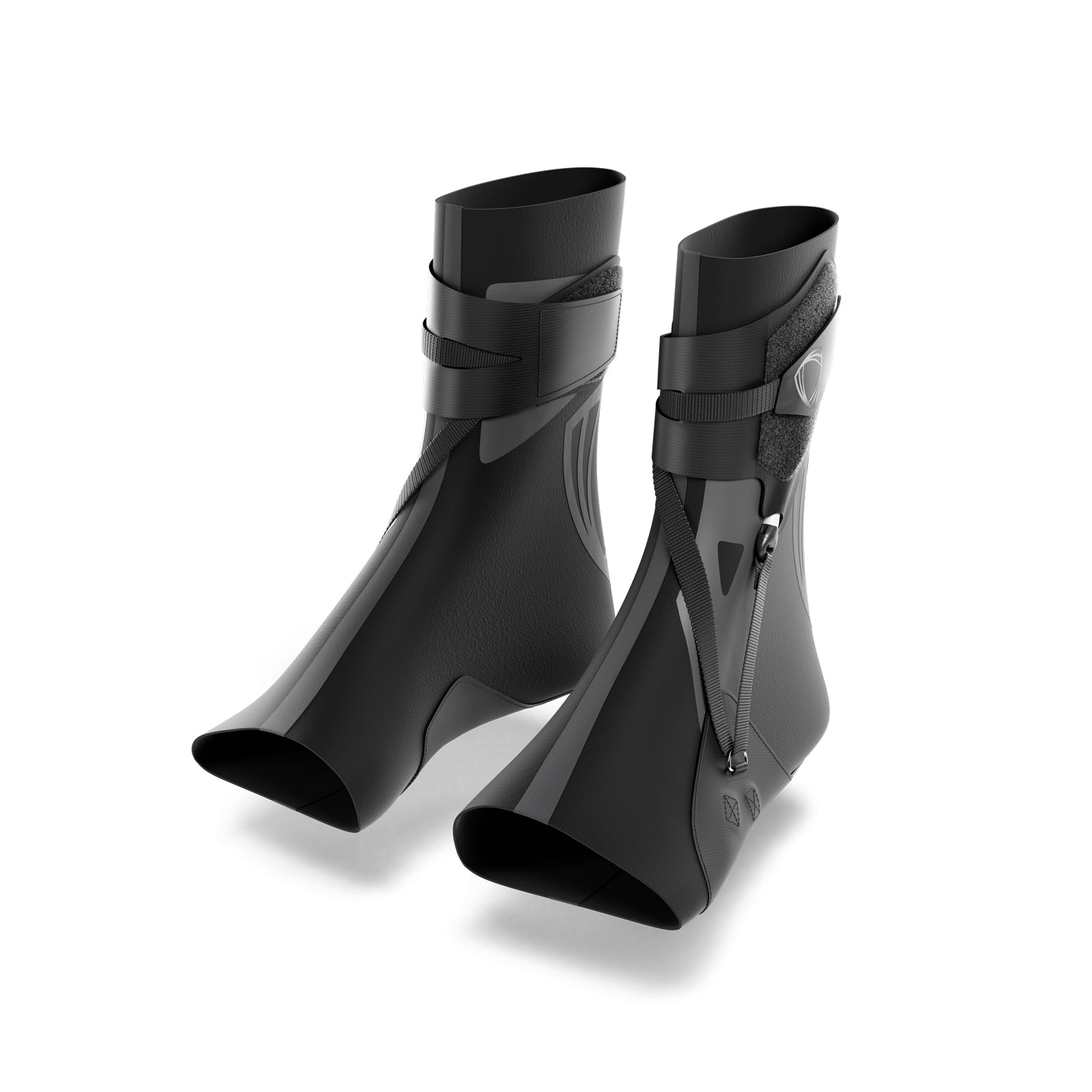
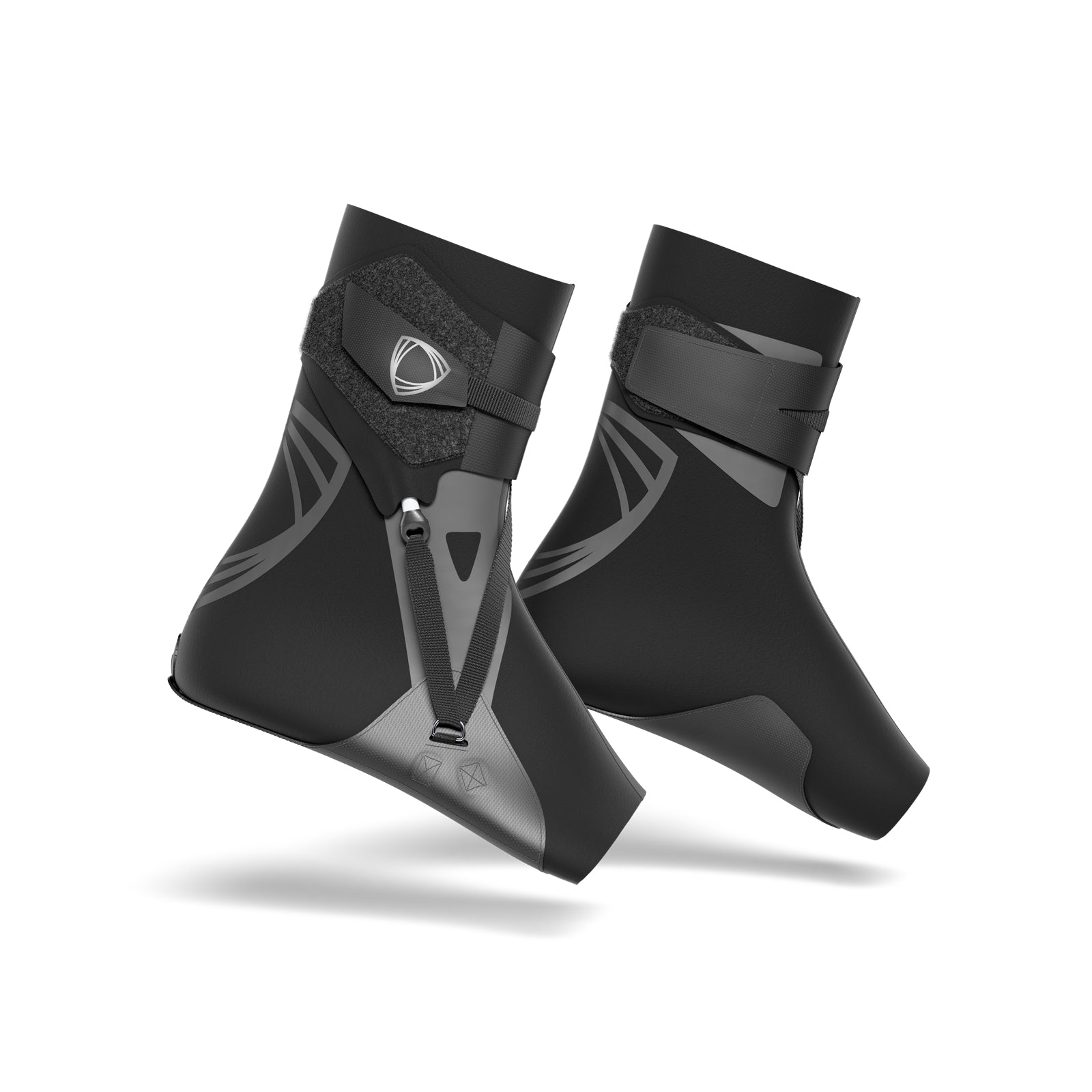
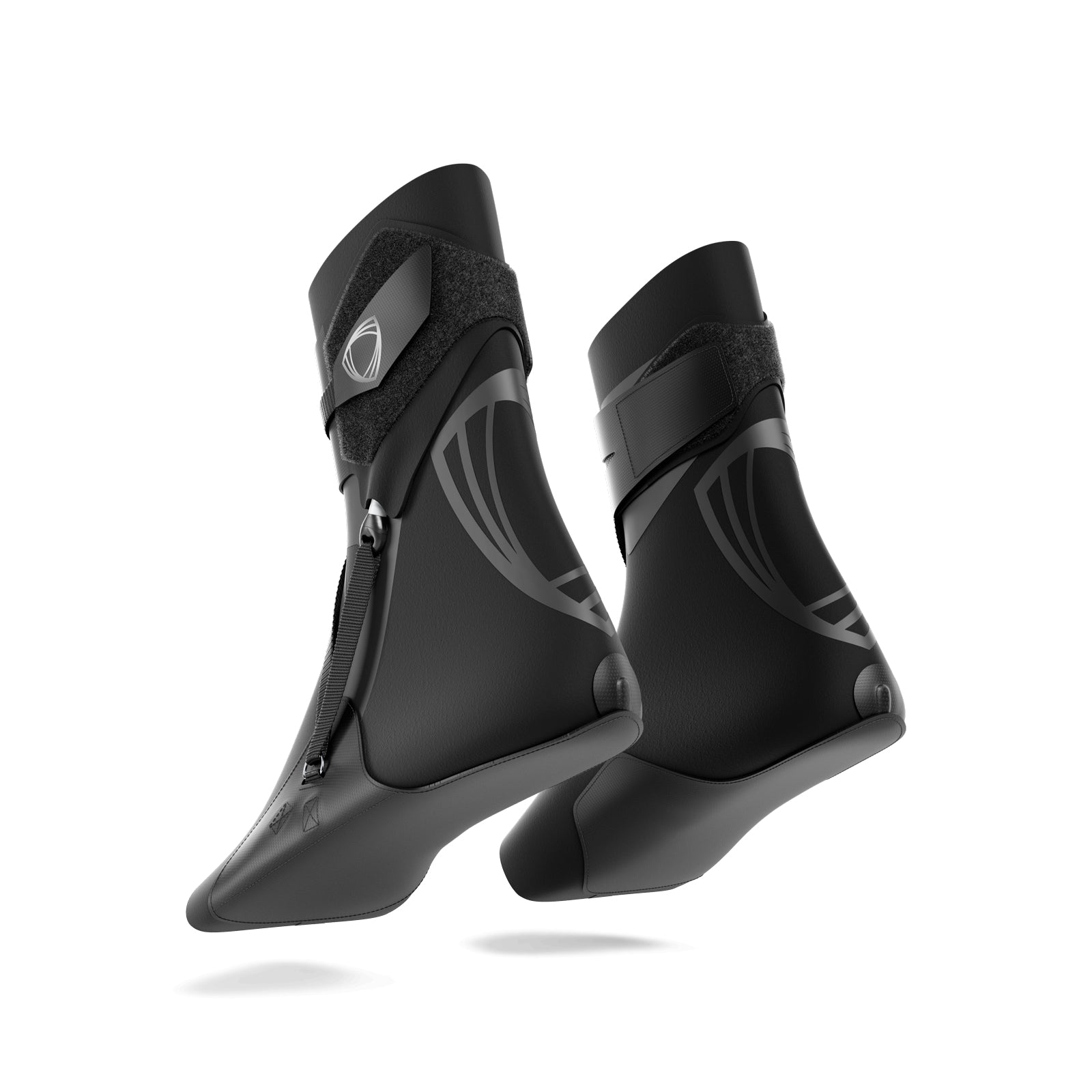
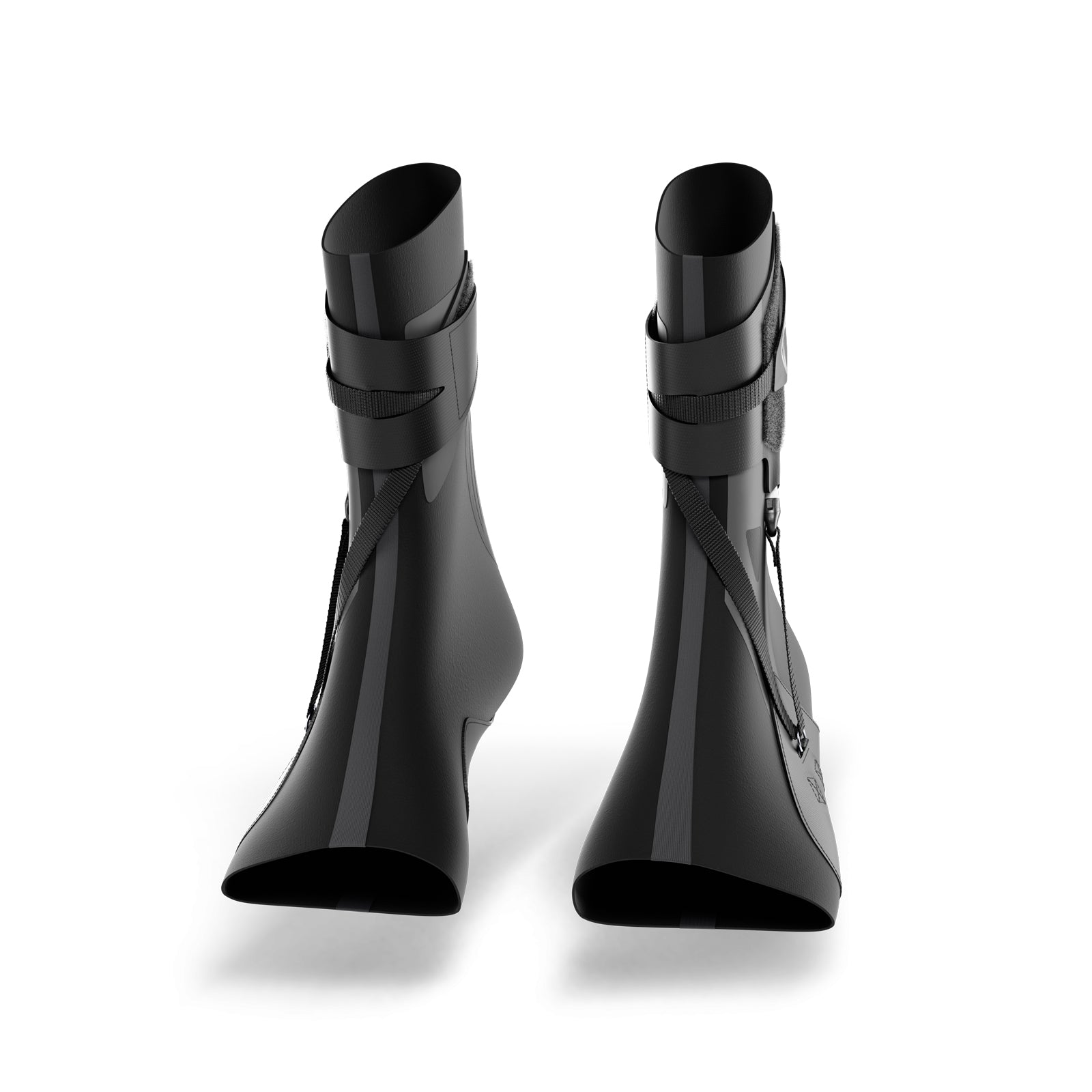
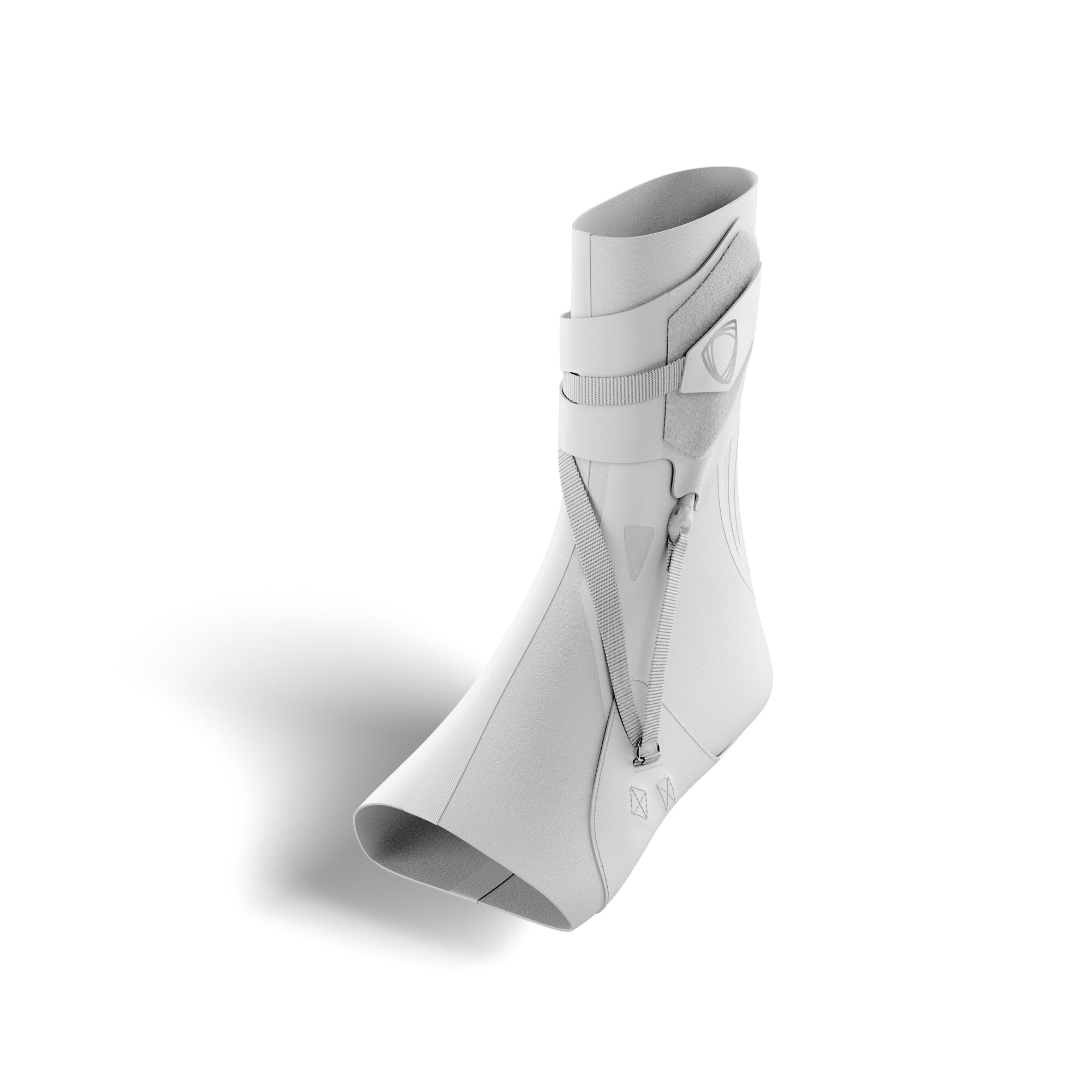
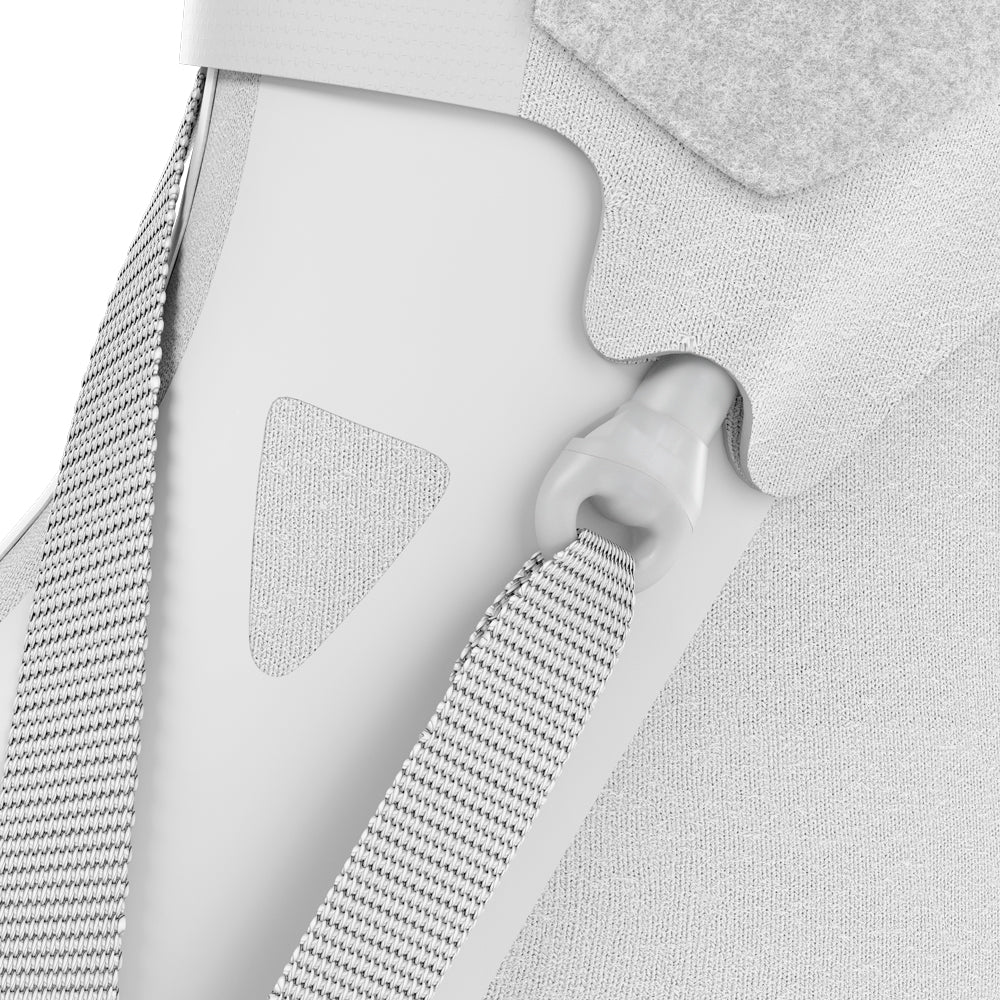
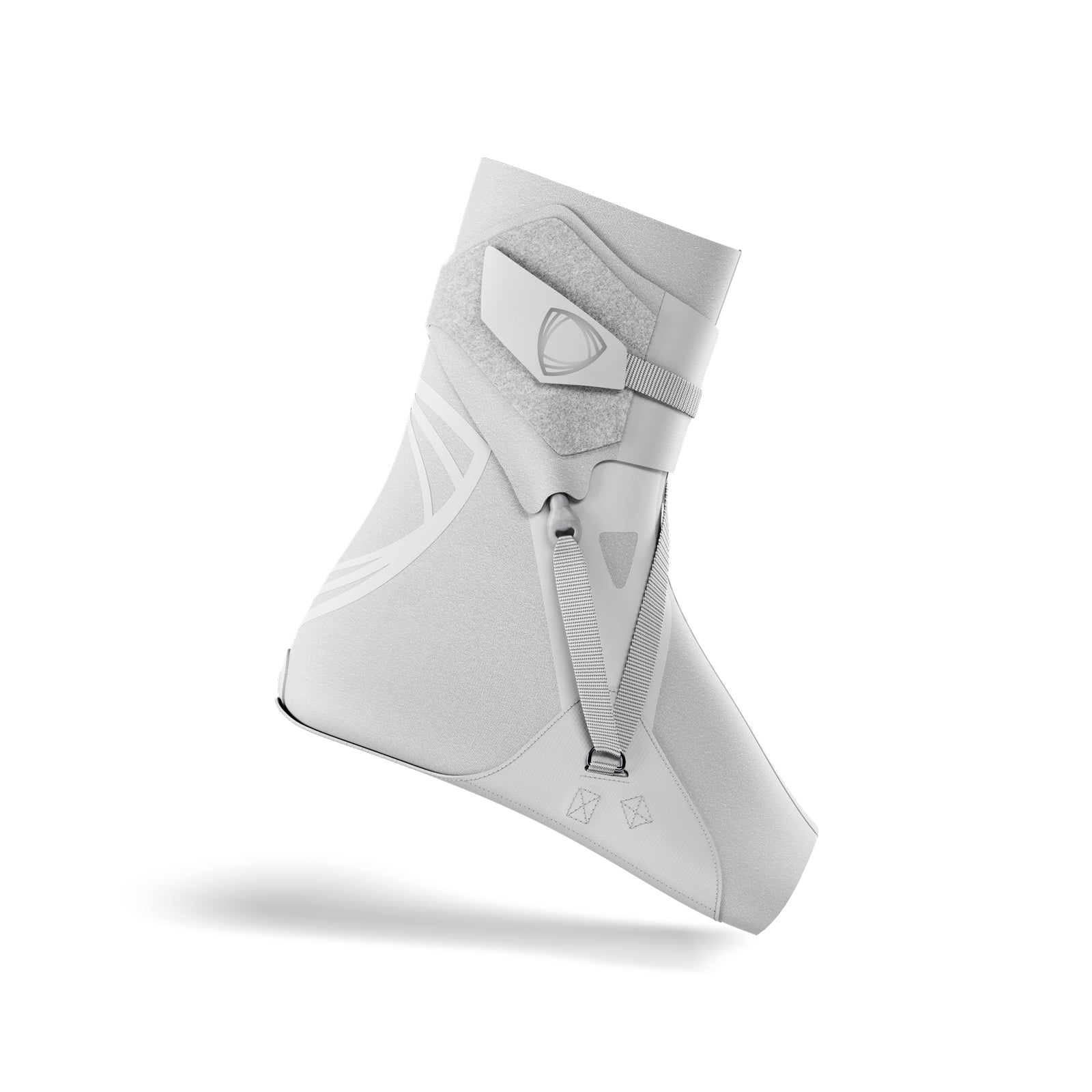
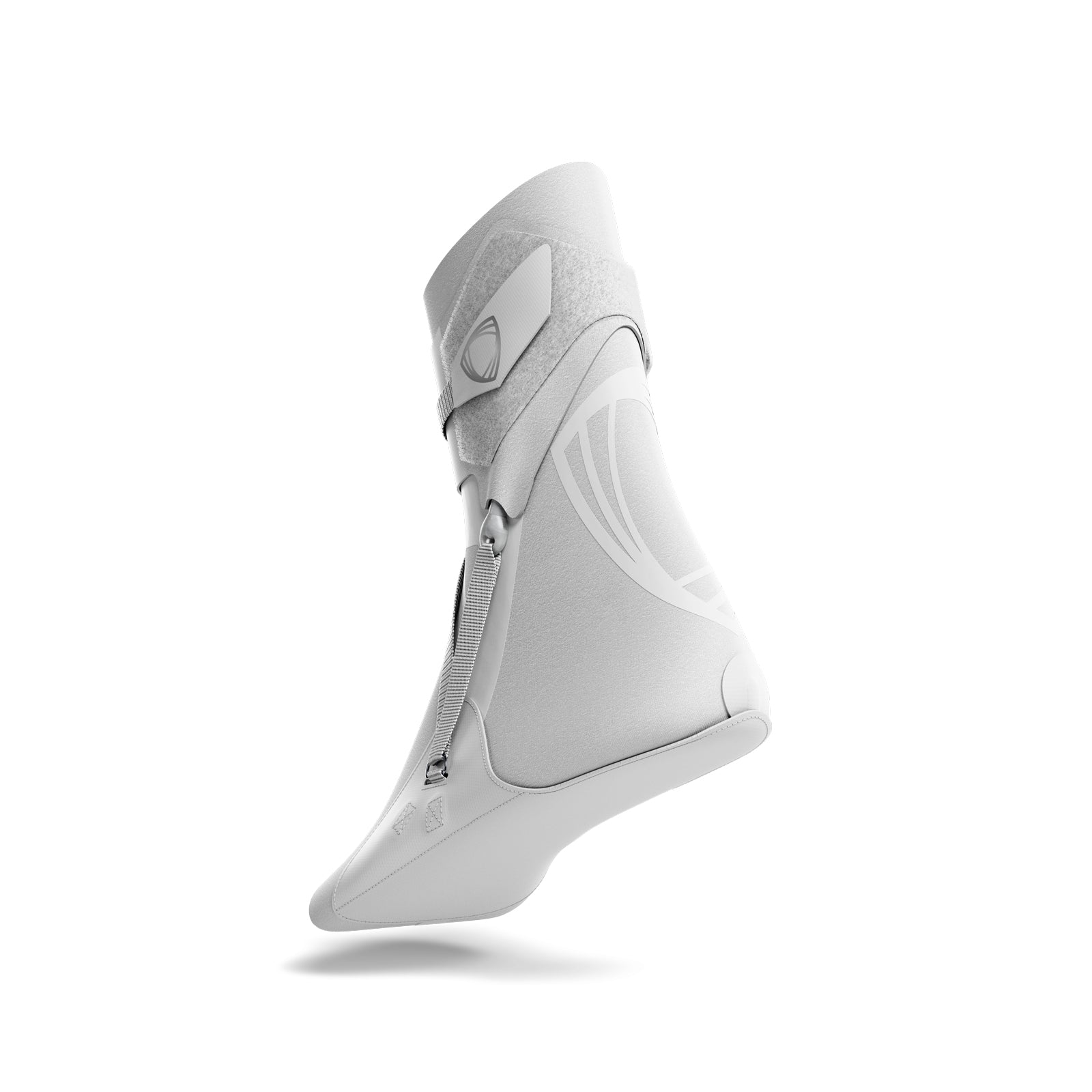
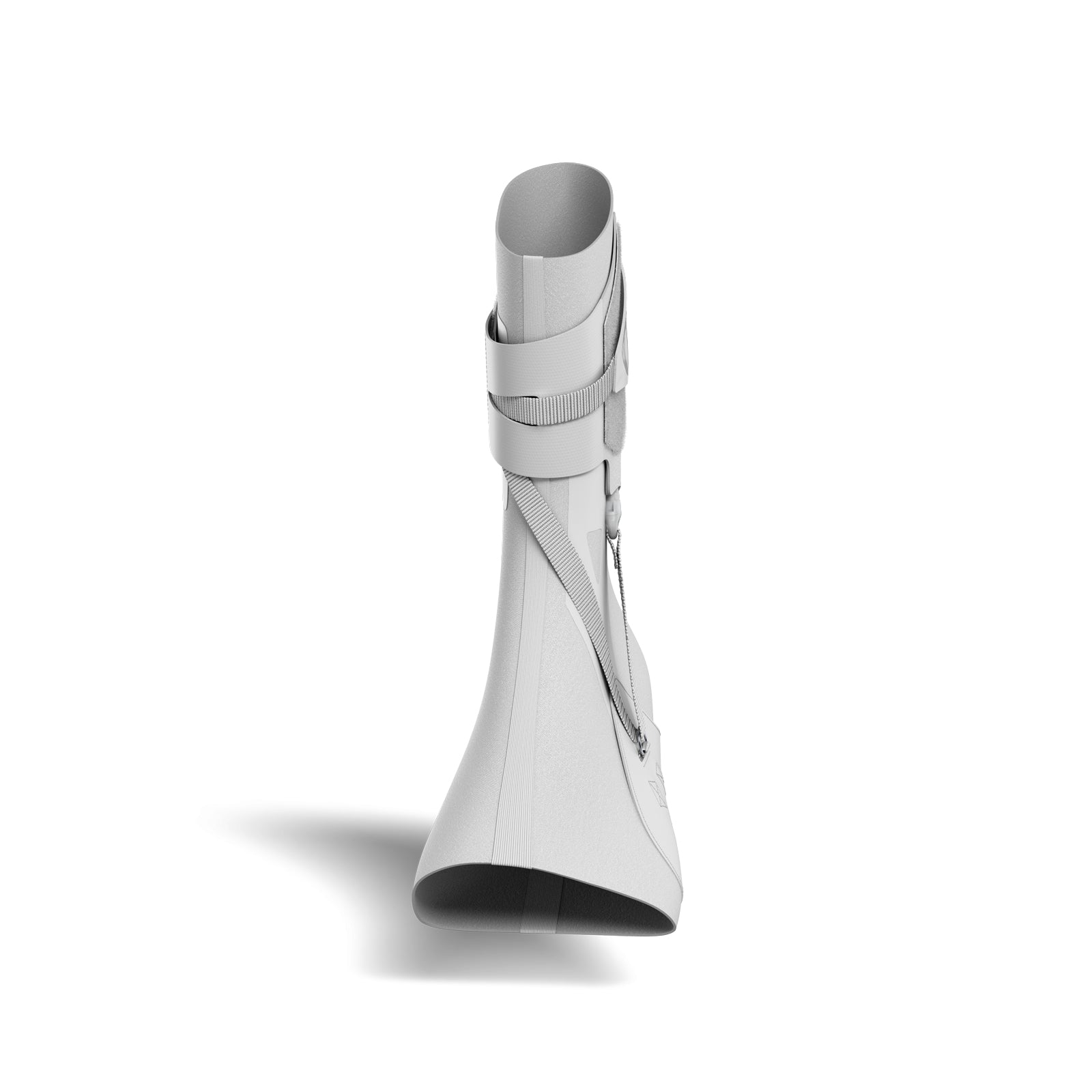
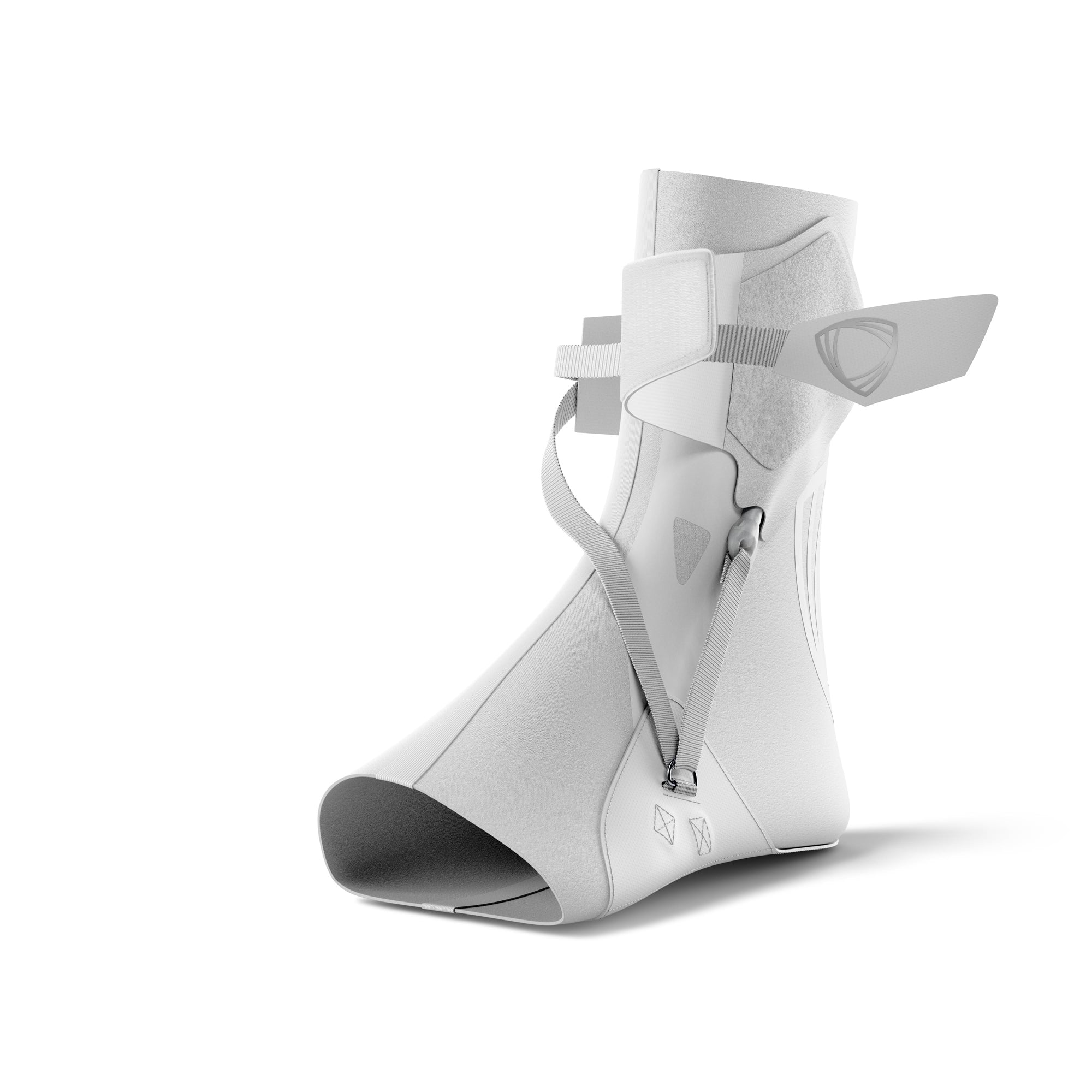
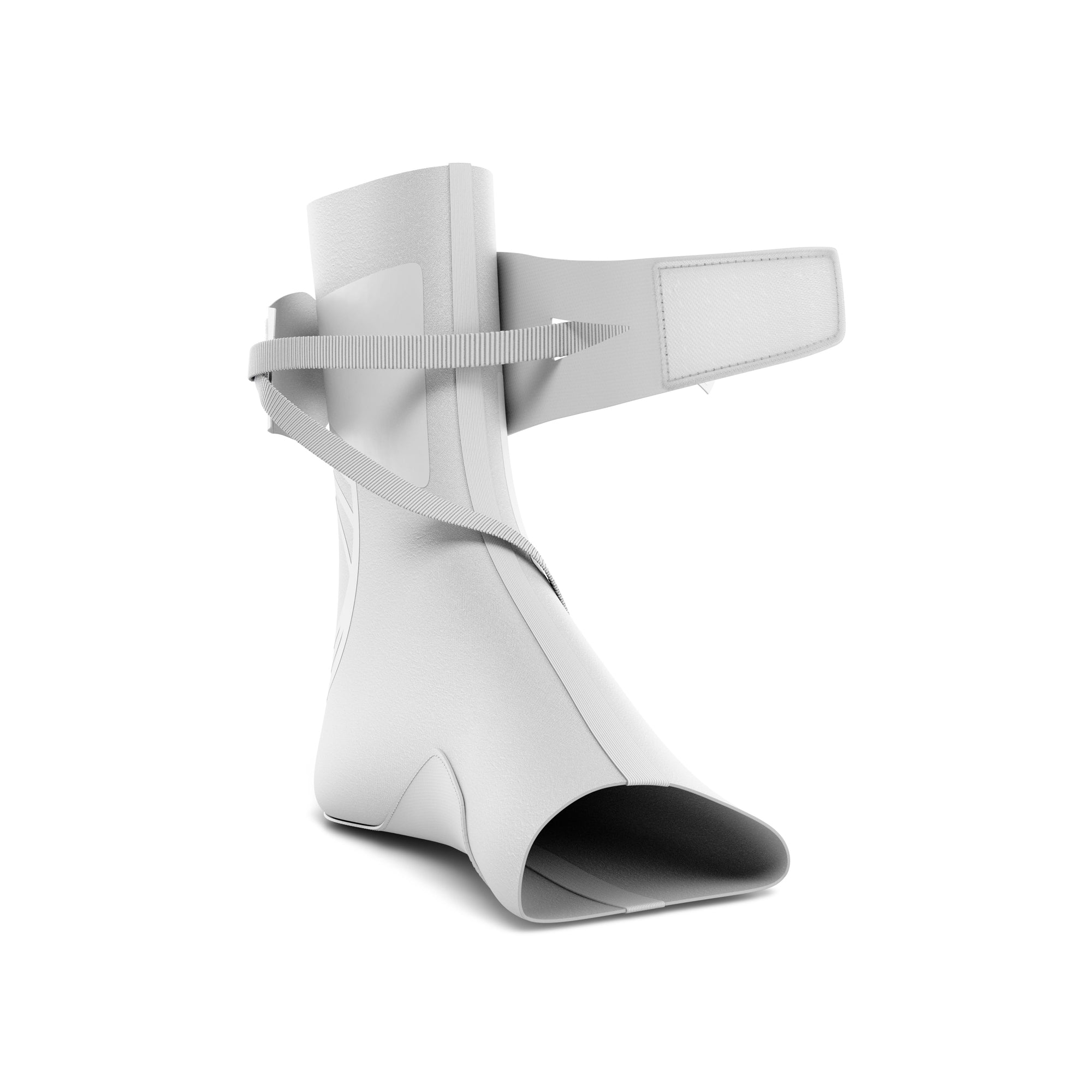
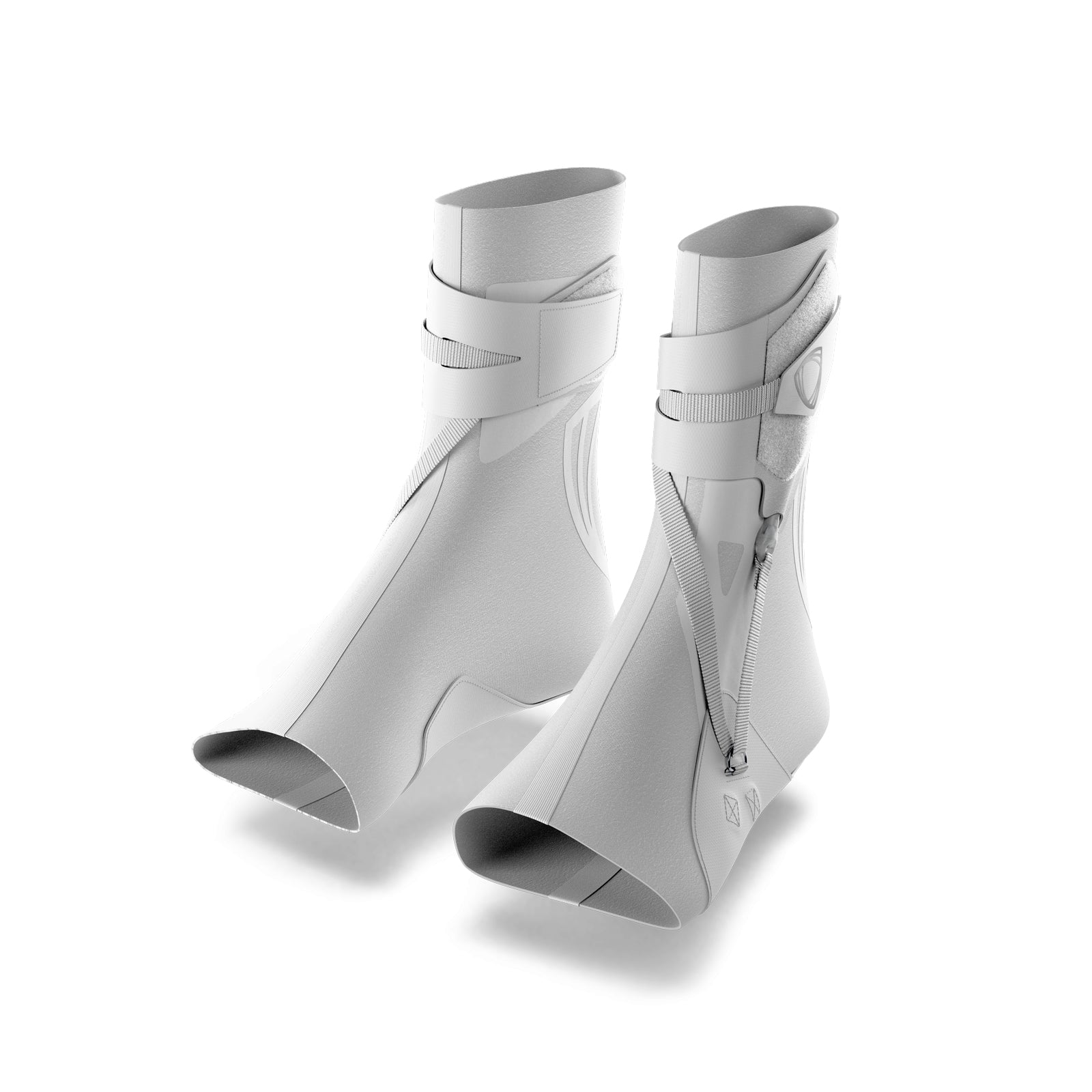
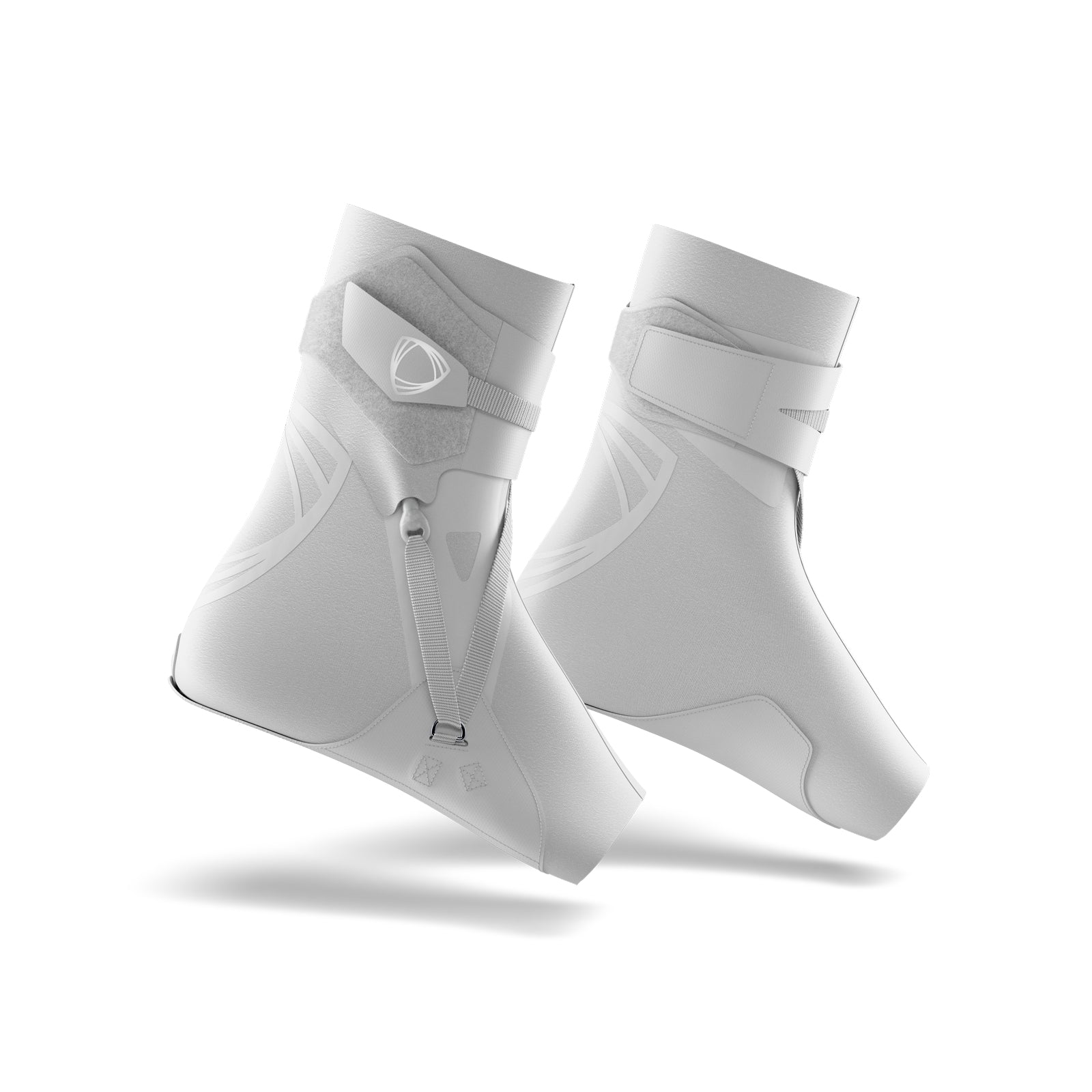
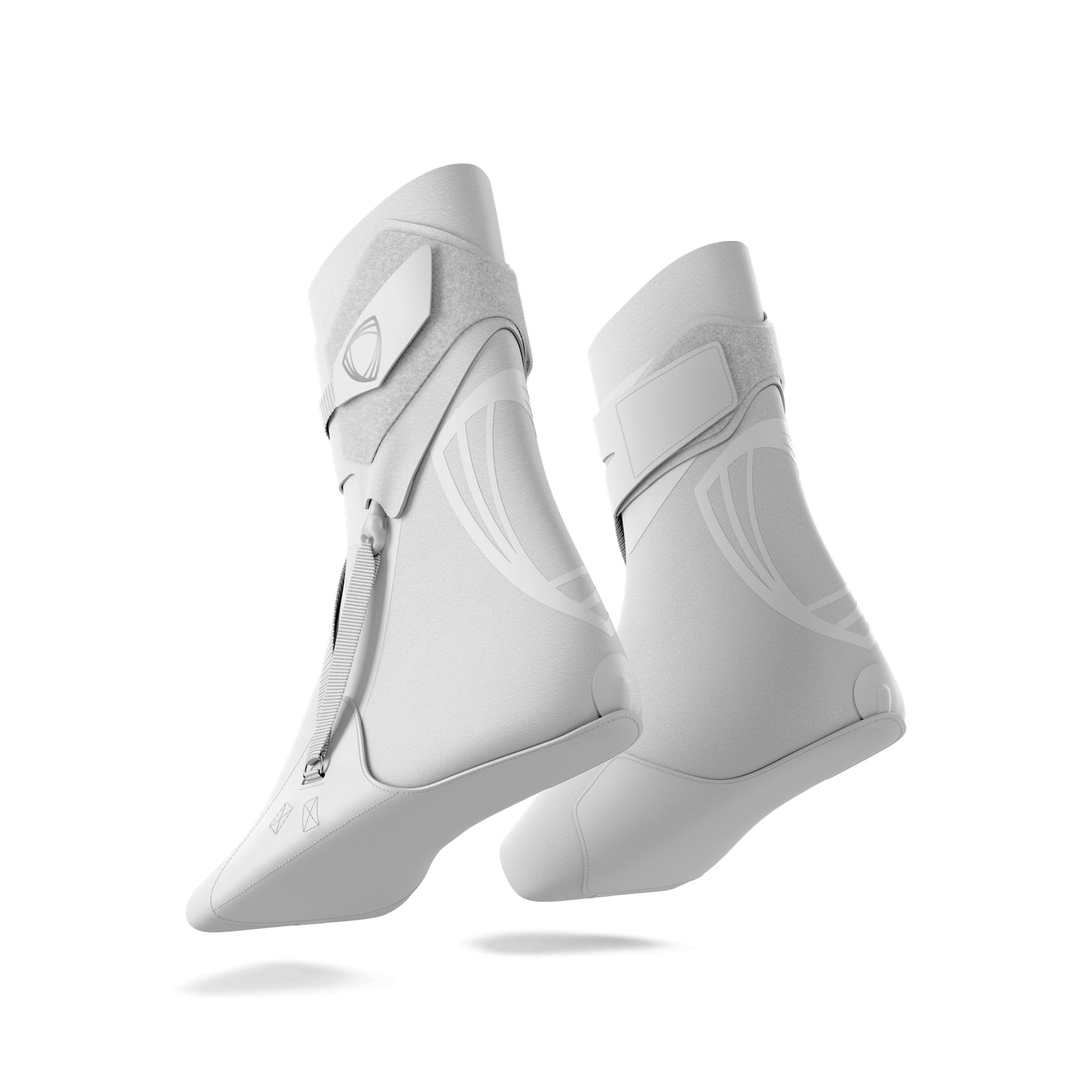
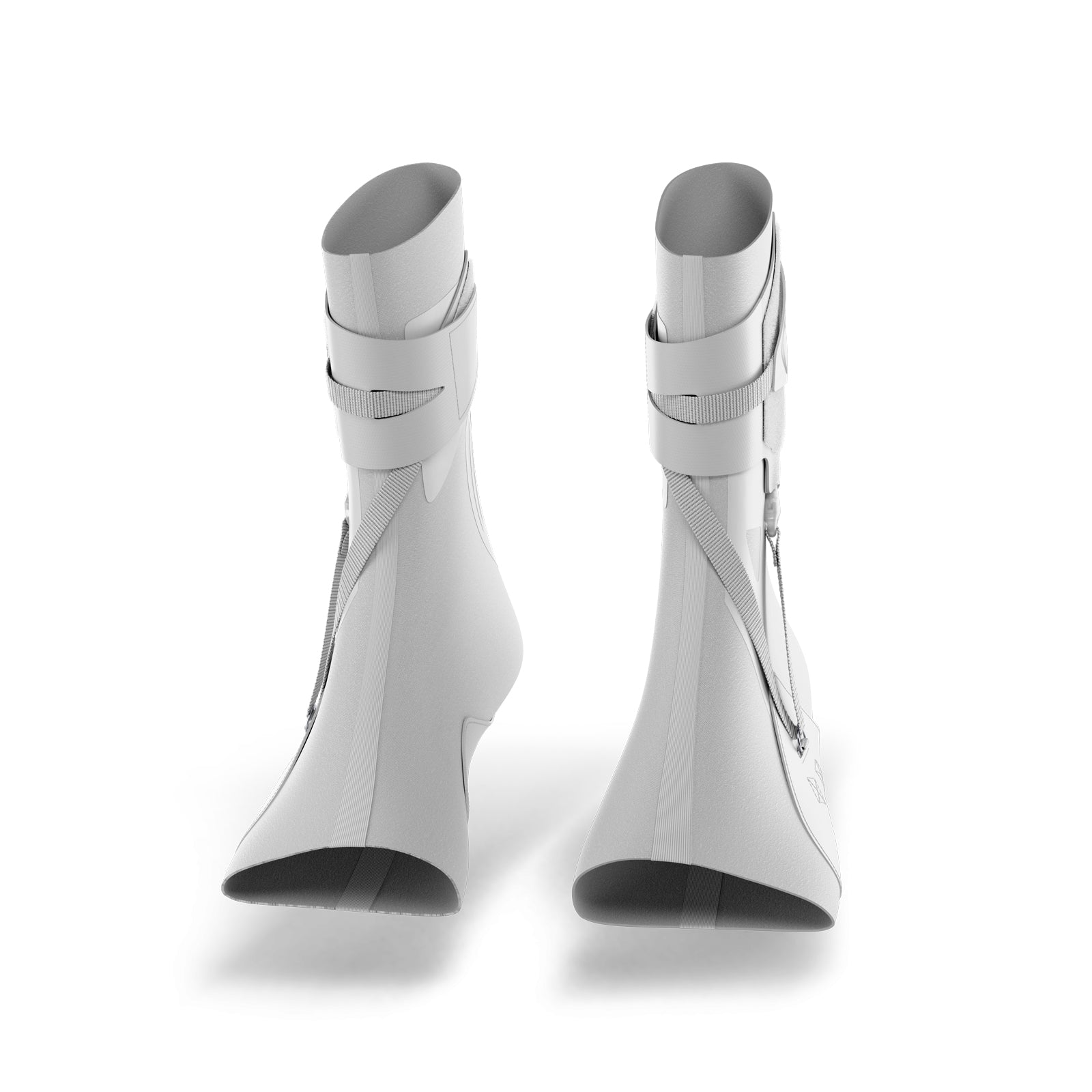
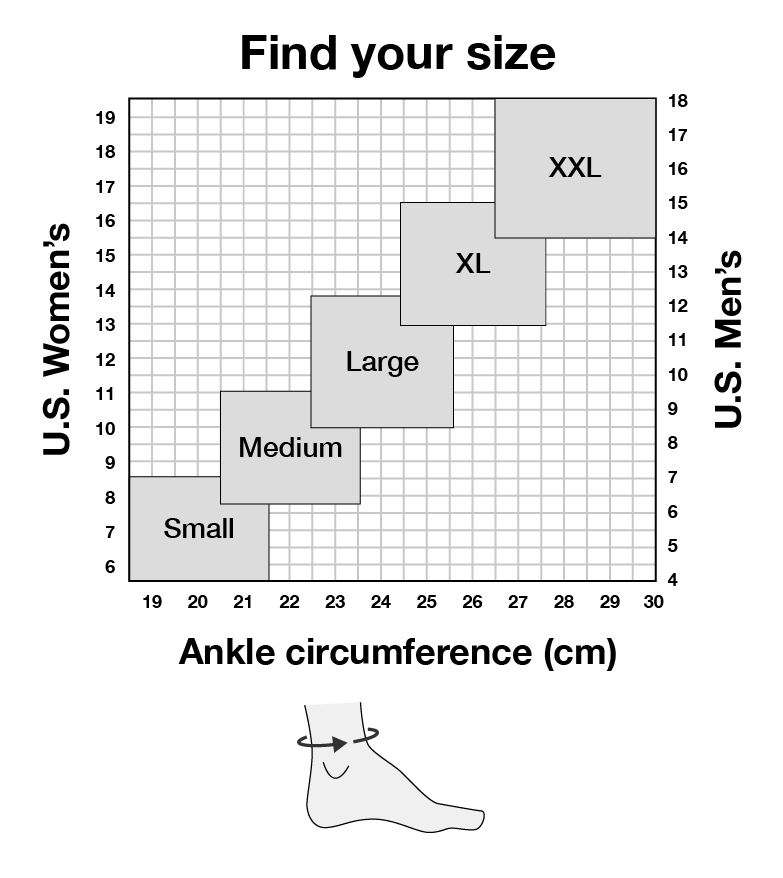
The BetterGuard 3.0
Ankle brace for running
- Ankle support brace for running
- Designed in partnership with NBA Launchpad
- Ultra-lightweight and durable
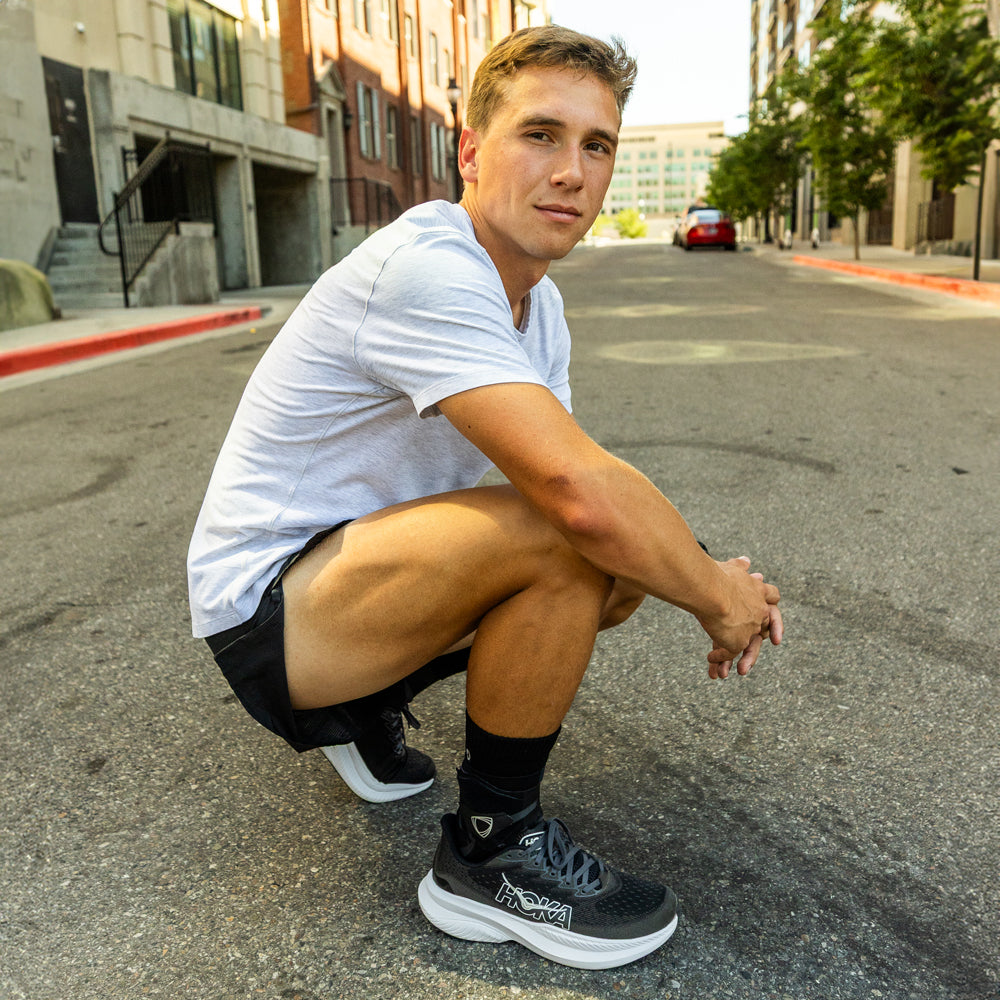
Get the ankle support you need for every mile
The ultimate ankle brace, made for runners like you. The BetterGuard is ultra-lightweight, versatile, and sleekly designed to help you stay on track without holding you back.
SHOP NOW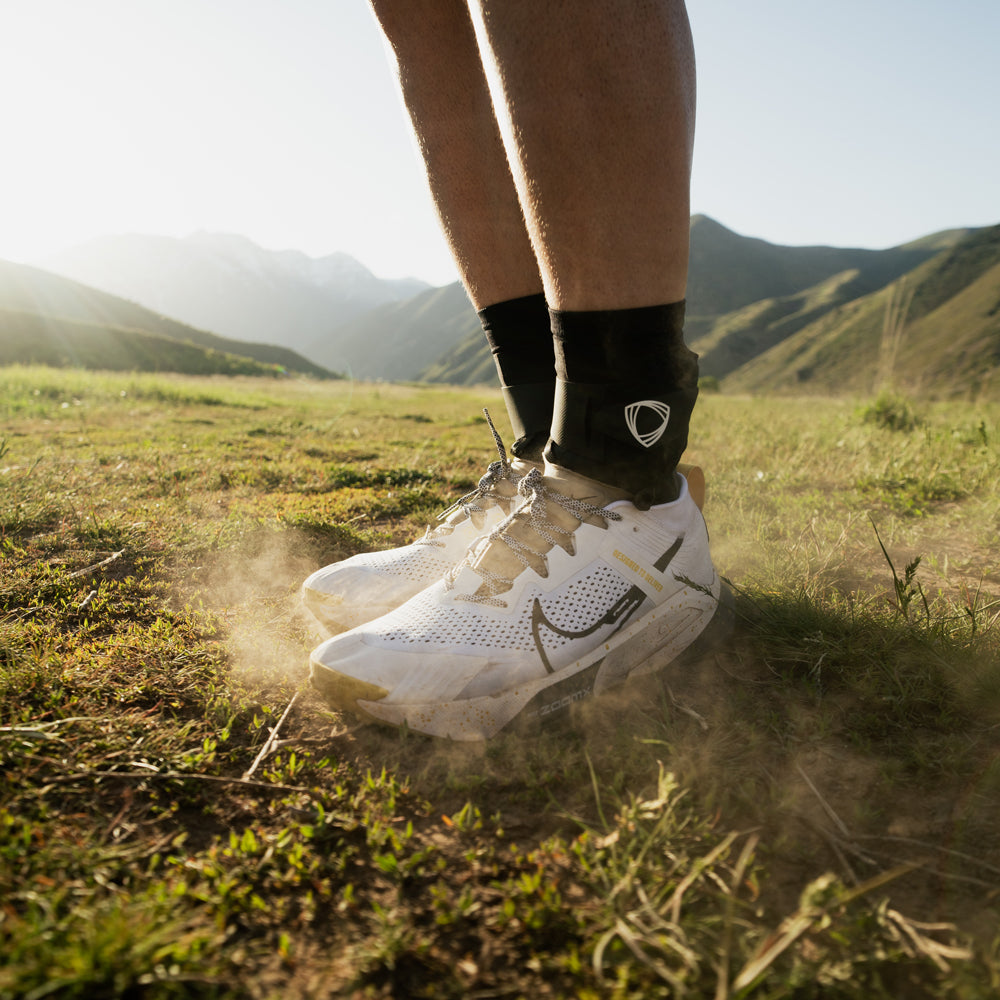
Push your limits with the only running ankle brace that's made to move
From the street to the trail — and everywhere in between — The BetterGuard's ultra-lightweight design helps you feel fast, agile, and assured. Made to withstand the demands of every terrain, The BetterGuard is your secret weapon to run beyond the boundary.
SHOP NOWChoose the best ankle brace for running
Why we made this
25,000 ankle injuries happen every day
The American Orthopaedic Foot & Ankle Society estimates 25,000 people sprain their ankle every day. Ankle injuries can be a season-ending nightmare. Prioritizing proper ankle health and recovery after an injury is crucial for runners. Taking the necessary steps to protect your ankles is an investment in your long-term running success.
50%
An estimated 50% or more of regular runners get injured each year.
34.5%
An estimated 34.5% of ultra-marathoners injured their ankle, making it the most common injury in the sport.
70%
Up to 70% of individuals who sustain an acute ankle sprain develop residual physical disability, including chronic ankle instability.
HOW IT WORKS
We built an ankle brace for runners based on science, not tradition
At Betterguards, we go by the science — not the trends. The BetterGuard is specifically designed, engineered, and tested to help runners do what they love most. The adaptive ankle support inside is science-backed, safe, and truly effective.
BEHIND THE DESIGN6 reasons why runners love The BetterGuard
No other ankle brace gives you more
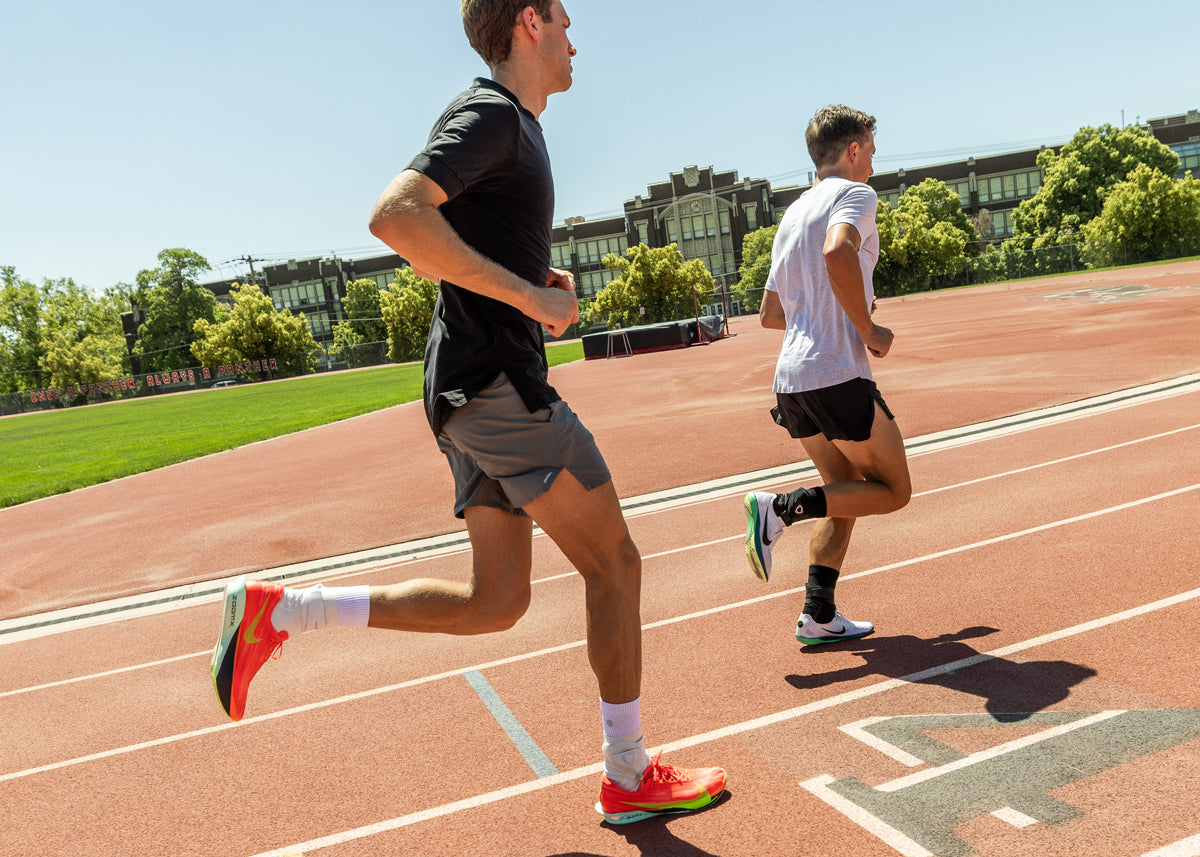
Foot and ankle mobility
Push your limits with a high range of motion and adaptive ankle support that won’t hold you back.
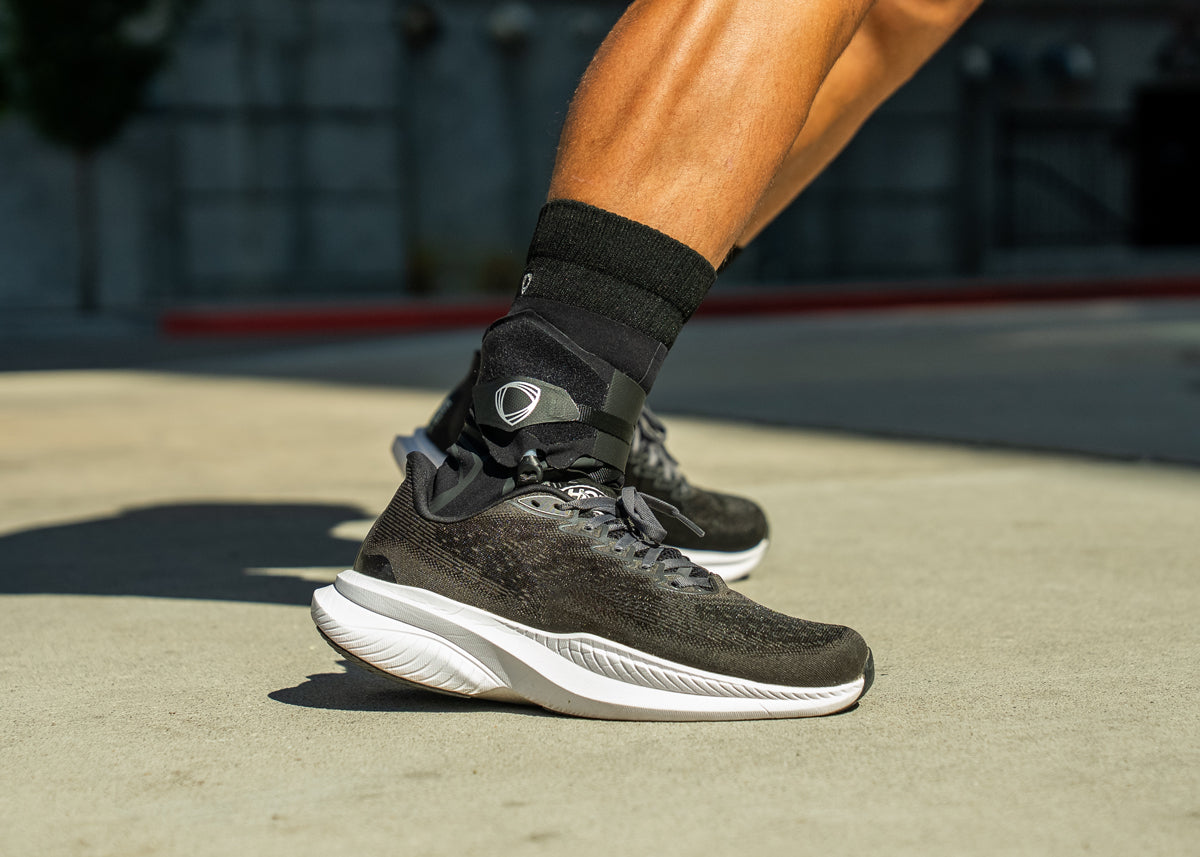
Adaptive support
In the event your ankle starts to twist or roll, The BetterGuard stabilizes your joint 4x faster than your body.
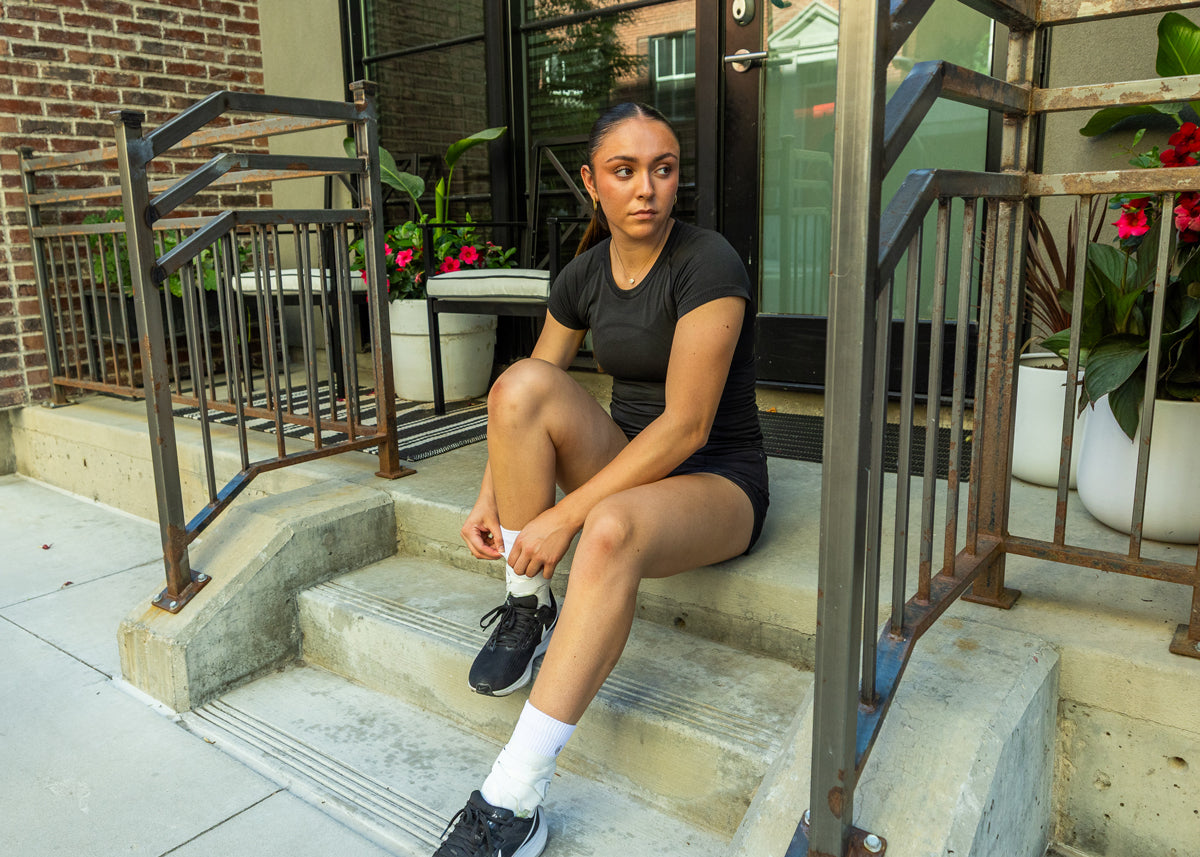
Return to running. Faster.
Minor twists and ankle rolls can't slow you down. The BetterGuard empowers your return to the trail with targeted support to minimize re-injury risk throughout recovery.*
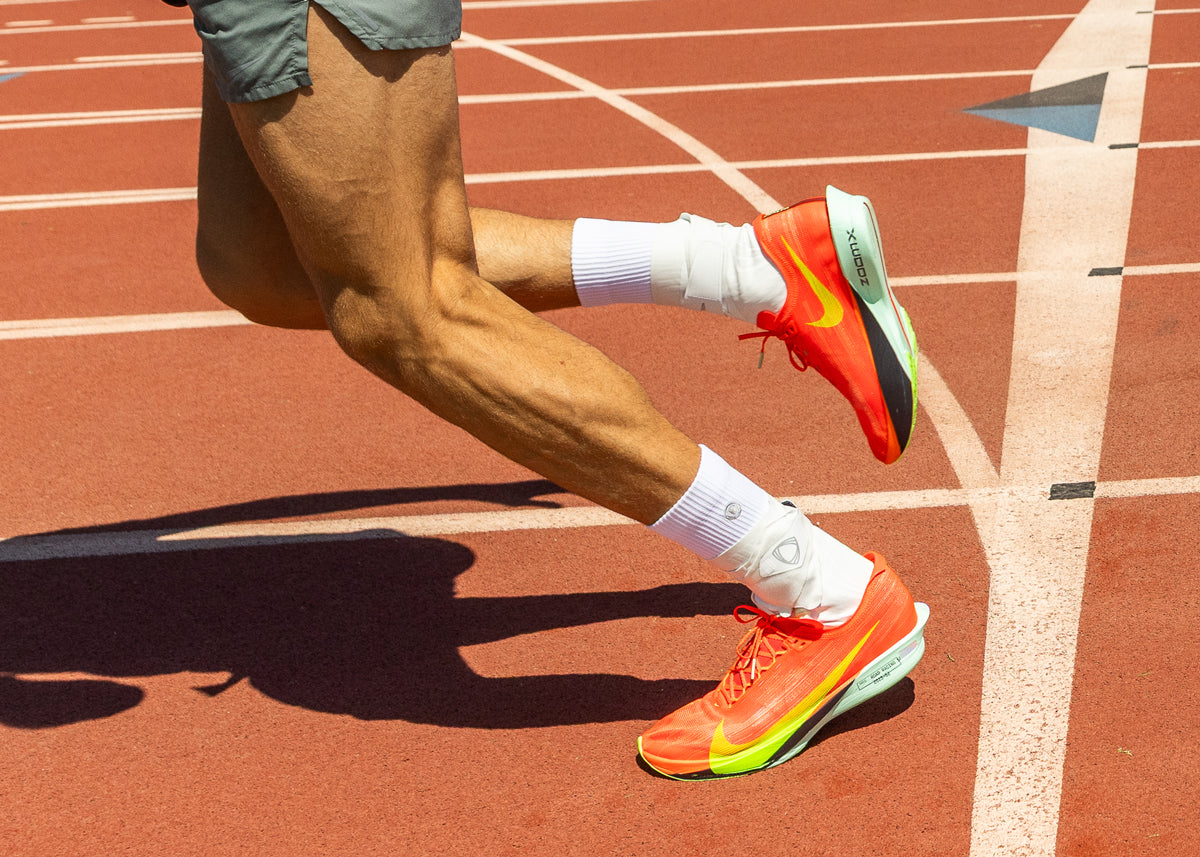
Performance-driven design
The BetterGuard is made with breathable, lightweight compression making it lighter than traditional ankle braces.
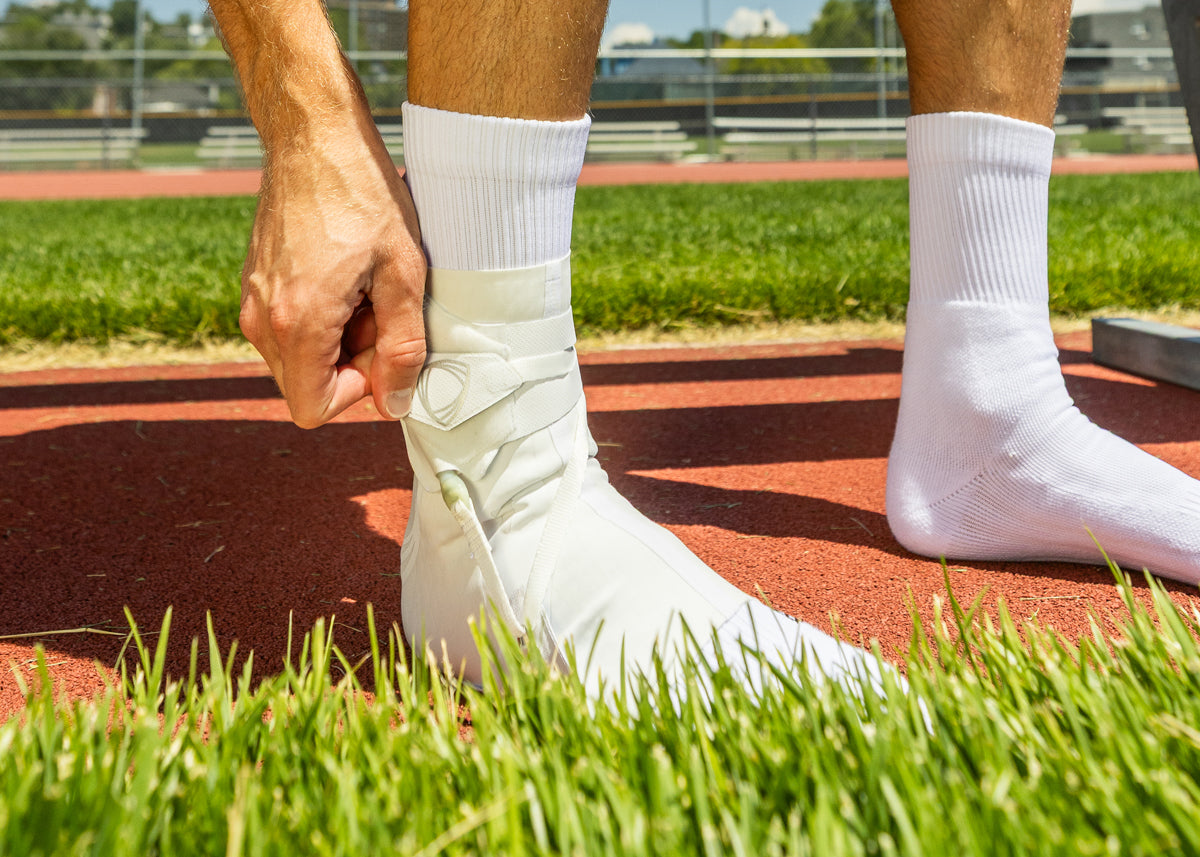
Adjustable fit
Adjust your fit on the go without removing your shoes. The BetterGuard fits seamlessly inside your running shoes so you stay focused on the road ahead.
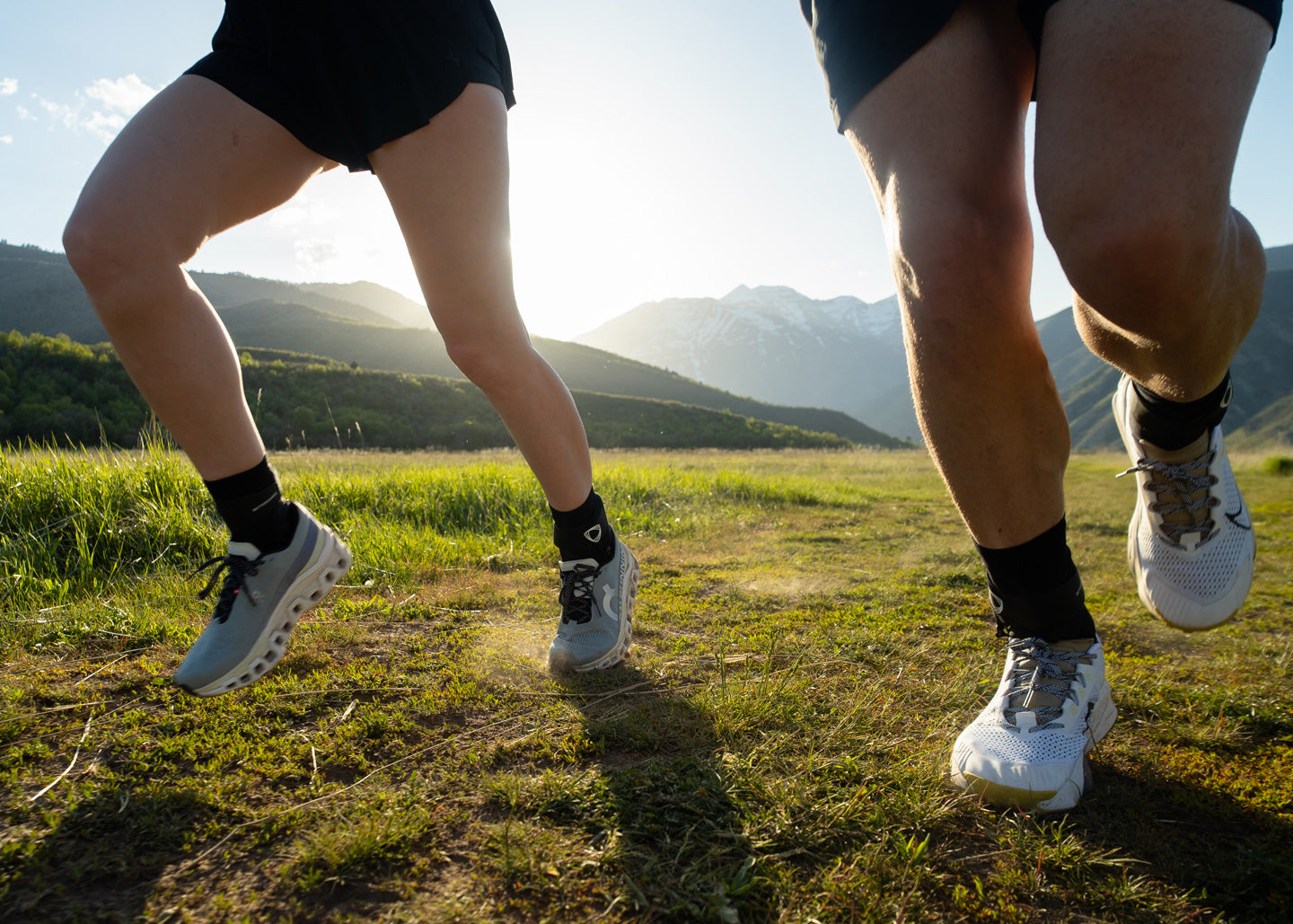
All terrain ankle support
From the sidewalk to the trail — the best runners trust The BetterGuard to help them stay on track, and you should too.
Frequently asked questions (FAQs)
How to wear an ankle brace for running?
Choosing the right ankle brace for running is key to maximizing performance and avoiding injuries, and knowing how to wear it is crucial for optimal support and comfort. The BetterGuard should be worn with low-cut running shoes. The brace should also be worn over top of a clean, dry sock that's thin and breathable. Remember to listen to your body and adjust as necessary to avoid chafes and other discomfort.
For full, step-by-step pull-on instructions, watch the video here: How to put on an ankle brace
Can you run on a sprained ankle?
Resuming running after an ankle injury requires a cautious and personalized approach. While the lure of the pavement may be strong, pushing through pain with a sprained ankle is a recipe for further damage and delayed recovery. Most sports medicine professionals recommend prioritizing complete healing and specific rehabilitation before contemplating a return to running. Ignoring instability or pain can lead to chronic issues and potentially necessitate surgical intervention. A gradual return-to-run program, guided by your doctor, athletic trainer, physical therapist, or other form of sports medicine specialist, should focus on regaining strength, flexibility, ankle support, and proprioception before reintroducing low-impact running on soft surfaces. Patience and respect for your body's healing timeline are crucial for a safe and successful return to the sport you love.
What is the best ankle brace for running?
Choosing the best ankle brace for running could depend on your specific needs. There are several types of ankle braces, and there may not be a single "absolute best" for every runner. In general, a good ankle brace for running won't have bulky laces or straps hindering your performance. The BetterGuard shines for its unique blend of features that aid in preventing running-related ankle injuries. The adaptive technology instantly stabilizes your ankle only when needed, offering a high range of motion for agile movements without sacrificing critical support. The BetterGuard's lightweight design and comfortable fit make it feel like a natural extension, not a restrictive burden. For runners seeking proactive ankle protection with the freedom to perform at their best, The BetterGuard offers a compelling combination of cutting-edge tech with a runner-centric focus.
How to avoid ankle injury while running?
Running injuries to your foot and ankle are extremely common. Protecting your ankles while running is all about building strength, choosing the right gear, and running smart. To prevent ankle injuries while running, build your range of motion with stretching and strengthening exercises, including calf raises and ankle circles. Warm up with dynamic stretches, cool down with static ones, and improve your balance with activities like single-leg squats. Support your foot and ankle with proper shoes and ankle supports. Listen to your body: ease into training, gradually increase mileage, and heed pain signals. Choose softer paths when possible, and practice good ankle articulation on trails. Finally, consider cross-training with activities like swimming or cycling to give your ankles a break while staying fit.
Why do your ankles hurt after running?
Ankle pain after running can have several culprits, ranging from mild overuse to more serious injuries. Common offenders include pain in the Achilles tendon, muscle strains from sudden mileage jumps or poor form, overuse injuries, chronic ankle instability, or even tiny stress fractures in the bone. Injuries like ankle sprains from unexpected twists and turns can also be at play. Work on gradual mileage increases, proper warm-up/cool-down, regular stretching, and good running form to prevent ankle pain after running. Strong ankle muscles and foot and ankle joint mobility are your best friends. Ensure you're wearing proper running shoes, and consider wearing ankle braces that can add much-needed support. Rest, ice, compression, and elevation can also aid in relieving pain in your ankles following a run.
Why do my ankles hurt when I run?
Ankle pain during running can stem from overuse (muscle strains, tendinitis, stress fractures) or injuries (sprains, arthritis). To prevent it, gradually increase mileage, warm up/cool down, stretch, wear proper shoes, improve form, and strengthen ankles. Consider running with an ankle brace to add compression and support the joint. You can also try resting, applying ice, and elevating the joint.
If pain persists, consult with your healthcare professional.
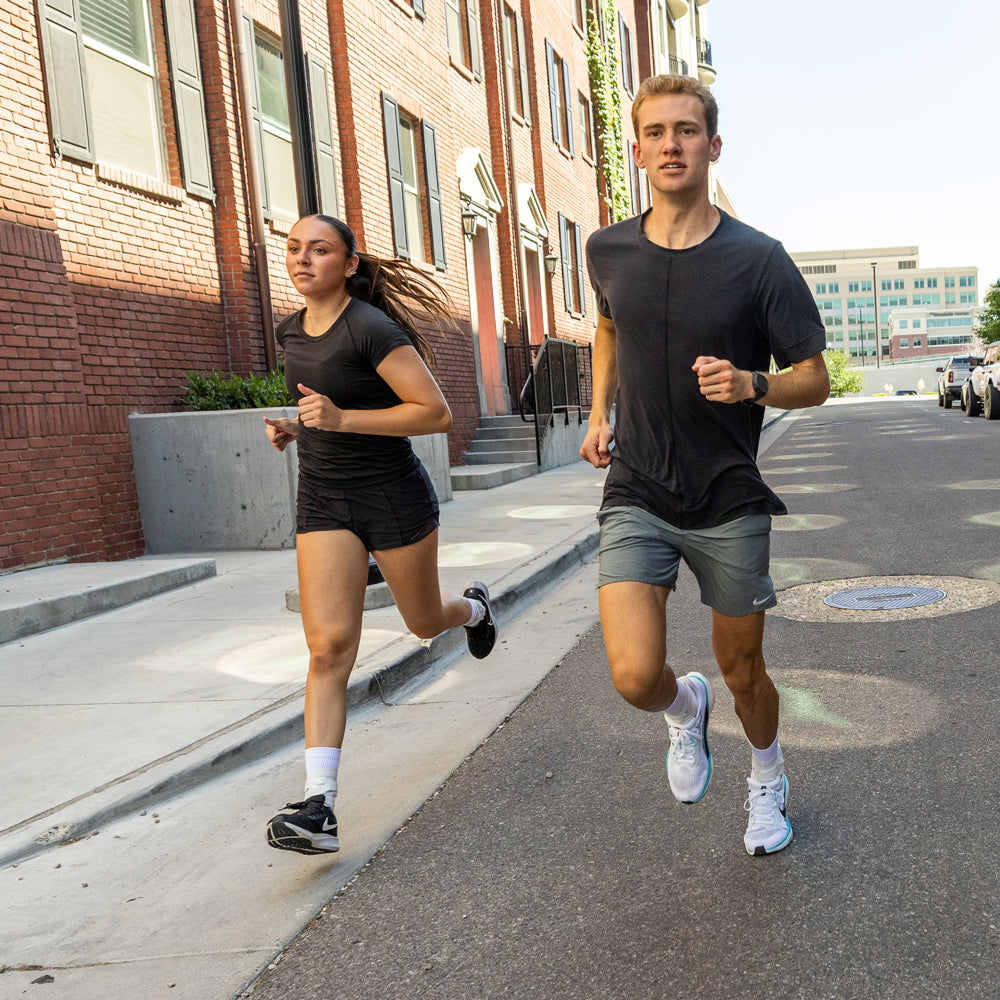
Push beyond the horizon
Say goodbye to unstable ankle twisting and turning. The BetterGuard offers the mobility and support you crave to push your limits.
SHOP NOWGet inspired
Get the latest news, training and education hub, and partner updates from Betterguards.
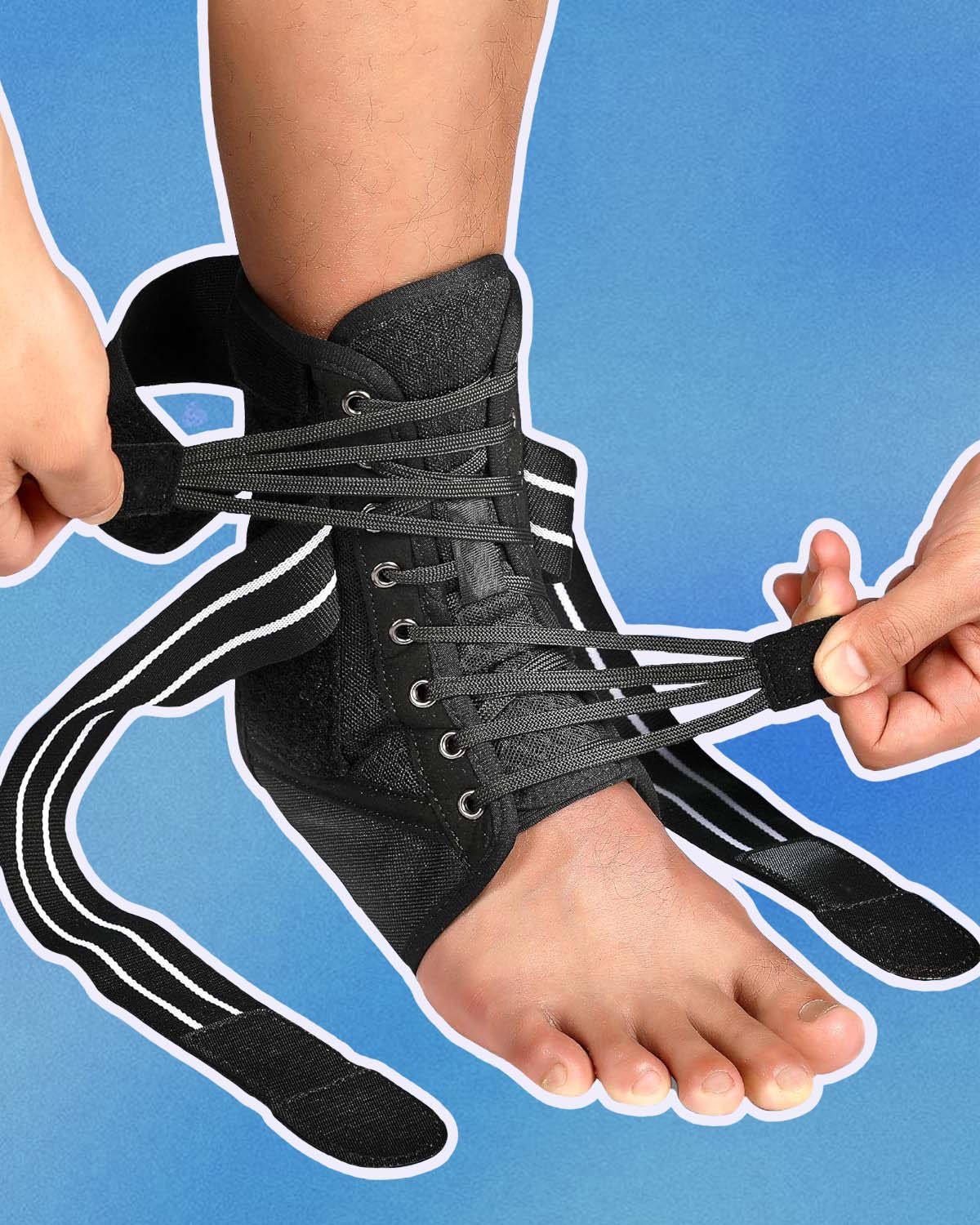
Stop using lace-up ankle braces — do this instead
Twisted your ankle? Here's why lace-up ankle braces might not be the best fit for you.
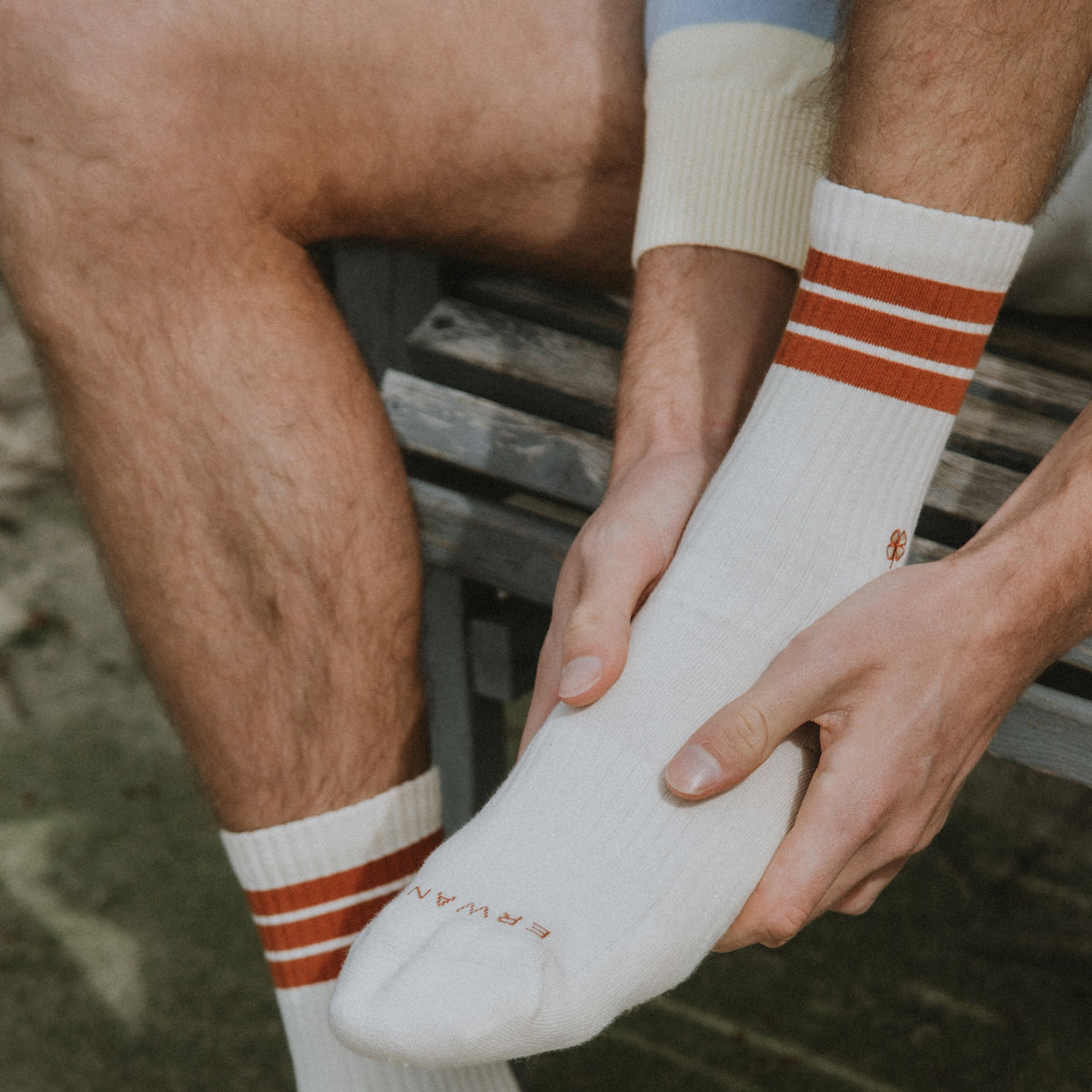
Ankle pain when walking?: Common causes & treatments
If you're experiencing ankle pain when walking, you're not alone. We're unveiling the mystery behind ankle pain, including common causes and treatments.
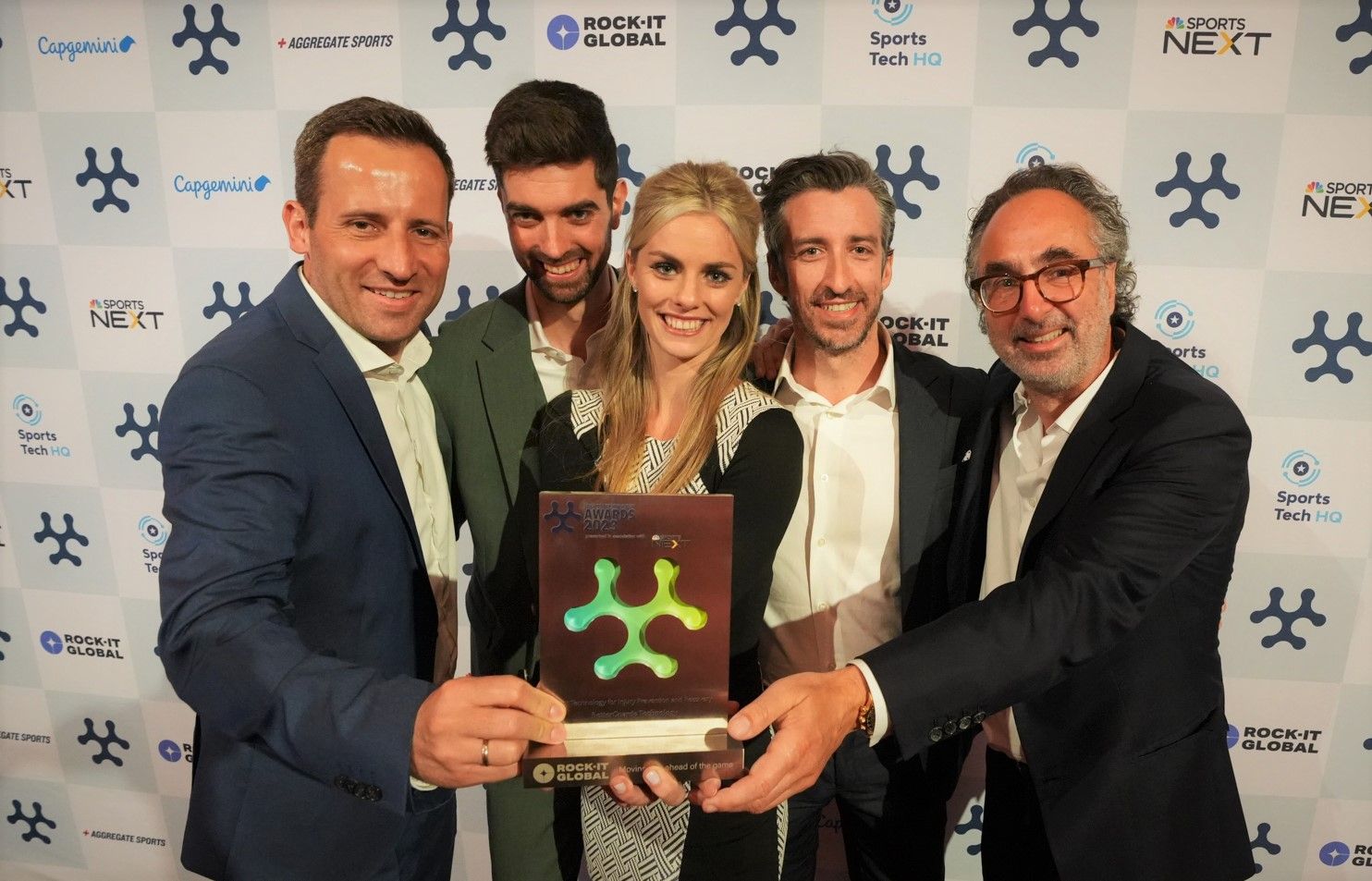
Bringing game-changing innovation to U.S. athletes, backed by NBA stars Franz and Moe Wagner and industry experts
*Comparison of an adaptive ankle brace to conventional taping for rehabilitation of acute ankle injury in young sub-elite soccer players: a pilot study, Krobholz D et al. Accepted for publication by JSR

